18 things to know before traveling to Ghana

Mar 7, 2024 • 7 min read

Whether you're a first-time visitor or returning for more, here's what you need to know to prepare for your trip to Ghana © Houssam Ghandour / Getty Images
Travelers have plenty to look forward to on their trip to culturally rich Ghana .
Welcoming Ghana is considered one of the friendliest spots in West Africa, and with its compelling history, vibrant clothing prints and flavorful dishes , tourists keep coming back for more.
Life in Ghana generally moves at a slow, relaxed pace, but it can also be chaotic and fast in different settings. Embrace the cultural differences, mass traffic and intense bargaining, and you may fall in love with the place. Whether you're a first-time visitor or returning once again, here's what you need to know to prepare for your trip to Ghana.

1. Gather the necessary documents for entry
Getting the paperwork together to visit Ghana is a process on its own and can be pricey. All visitors to Ghana must have a valid visa , and they range in cost depending on whether you apply for a single-entry or multiple-entry visa. Your visa for Ghana can take nearly three weeks to arrive unless you shell out extra for an expedited service.
A yellow fever vaccine is also required for entry into Ghana. Check with your local health department or medical clinics to get vaccinated. Malaria pills are also strongly recommended for visitors and can be prescribed by your doctor. If you can't get your hands on them before coming, pharmacies in Ghana have plenty in stock, and they tend to be a lot cheaper.
2. Carry a copy of your passport
If you plan to visit different cities outside of Accra , be sure to print a copy of your passport to keep in your bag as you travel around the country. Police stops are common, and officers are known to ask for passport information.
3. Forget you have a left hand
In Ghana, actions like eating, waving and handing an item to someone are to be done with your right hand only (sorry, left-handers!). From an early age, many Ghanaians are taught that their left hand is to be used for cleaning themselves in the bathroom. Therefore, your left hand is considered filthy and should not be used for eating and other activities. Using your left hand for gestures and main tasks is considered highly disrespectful.

4. Eating with your hands is a cultural practice
Soup-based meals are paired with a starch staple food like fufu or banku and eaten with your hands (remember the right-hand rule!). Be observant of how those around you are eating, embrace the culture and dig in.
5. Keep your thumbs down
While the thumbs-up gesture in many places signifies approval, in Ghana, it shows disrespect.
6. Always greet others
Greetings in Ghana are a big deal, and it’s considered rude to not greet others. When you enter a room, you should say hello, good morning, good afternoon or good evening. When you meet a group of adults and greet them with a handshake, start with the person on the farthest right.
7. Respect your elders
Respect for elders is immense in Ghana. You should not greet elders with a hat on your head. If you are wearing a hat, take it off completely or lift it halfway while extending your greeting. Give up your seat on the bus for those older than you. Crossing your legs and having your hands in your pockets in the presence of elders are gestures that are frowned upon.

8. Be mindful of clothing cultures from city to city
Ghanaian clothing culture tends to lean more towards the conservative side. Accra is more relaxed, and you’re likely to see more shorts and crop tops. However, people elsewhere tend to cover up, so bring clothing that covers your chest and shoulders and reaches or goes past your knees.
9. Learn common phrases in Twi and other languages
Ghana is home to many different languages and ethnic groups. Twi, Ewe, Ga and Krobo are a few of many languages spoken depending on the region. English is widely spoken, but it's important to remember that not everyone speaks it, especially once you are out of Accra and into rural parts of Ghana. Learning a few phrases in the local language is always appreciated and embraced by Ghanaians.
10. Watch your belongings
Pickpocketing and instances of petty theft might be the biggest concern you'll have in Ghana. Pickpocketing can be prevalent in crowded areas like Osu, Madina and Makola Market. Always keep your bag in front of you and away from the roadside to avoid snatching incidents. Don't carry a large amount of cash on you.
Your phone should always be in sight and accounted for. Motorcyclists in Accra are known to snatch phones out of the hands of people as they are passing by both in cars and when walking. It is wise to never stick your phone out of a car window for pictures and videos.
11. Expect the police to stop you
Police stops in Ghana occur frequently, mainly at night but they can happen throughout the day. Your vehicle can be randomly searched by officers, and they may ask for ID and search your bag. These searches usually last for about five minutes, and it is best to comply.
Bribery is common in Ghana, and you may be asked to "dash" officers, which means tip. You can choose to give it or not as it's often only C10 to C20 (US$0.95 to US$1.90), but it may make the difference between a five-minute stop and a 40-minute one.
Police encounters in Ghana are generally nothing to worry about. Officers may have a “tough guy” attitude, but as you talk to them more, the guard comes down and they are usually friendly.
12. Be wary of swift romantic encounters
It’s easy to meet new people in Ghana, and conversations are always flowing. People are open to new connections and tend to get close quickly at times, but be careful of fast-moving romantic approaches and those who immediately ask for favors or money. Scams are common in Ghana and can occur in romantic encounters.

13. Be sure to carry cash
When you’re in Ghana, always have some cash on you, or you may find yourself stuck. Not every establishment accepts card payments, and if they do, the POS systems are often down. ATMs are everywhere in Ghana, so getting cash is easy. You can still bring both credit and debit cards, but be prepared that not everywhere in Ghana will accept them.
Forex Bureau exchange shops will change your cash to Ghanaian cedis. Large denomination bills (100s) will get you a higher exchange rate.
14. Avoid drinking the water
Drinking tap water in Ghana is not a good idea because there’s no guarantee that the water has gone through the proper measures to ensure it is safe. Boil your water or use a water filter before you drink it.
15. Expect weak wi-fi in most areas
Ask your accommodation about wi-fi speeds before your arrival if you plan to use it. Even if internet speeds aren’t the best where you’re staying, you can find reliable spots such as Vida e Caffè and Basecamp Initiative .
16. Use cash for Uber and Bolt
Download Uber and Bolt before you arrive. While paying by card is an option on both apps, don’t plan on using it. Many drivers prefer cash and will cancel your ride if they find out you are paying using your card, or it could be an issue once you arrive at your destination. You can always ask the driver to stop at an ATM before the final drop-off point.
17. Get a local phone number
Ghana is a place where verbal conversations are preferred over texting and online communication. You can get a local SIM card at Vodafone , a phone carrier at A&C Mall in Accra, so that you have a Ghanaian number. Drivers often call their passengers to find out exactly where they are.
18. Never underestimate Accra traffic
Accra traffic is nothing to be played with. You may see an attraction that you want to check out that is only 15 minutes away from your accommodations but it might take an hour and a half simply because of the volume of traffic. It's best not to set reservations for a place if you don't have to. While traffic and delays can be extremely frustrating, you’ll have to learn to go with the flow.
This article was first published Mar 11, 2022 and updated Mar 7, 2024.
Explore related stories

Tips & Advice
Sep 3, 2024 • 9 min read
November is the perfect time to give yourself a travel-fueled lift, with destinations primed for exploration during the penultimate month of the year.

Apr 13, 2023 • 8 min read
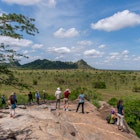
Apr 11, 2023 • 5 min read

Apr 6, 2023 • 3 min read

Mar 17, 2023 • 6 min read

Mar 9, 2023 • 7 min read

Oct 7, 2022 • 5 min read

Jul 30, 2020 • 9 min read

Jan 29, 2020 • 9 min read

Dec 5, 2023 • 4 min read
Ghana Travel Restrictions
Traveler's COVID-19 vaccination status
Traveling from the United States to Ghana
Open for vaccinated visitors
COVID-19 testing
Not required
Not required for vaccinated visitors
Restaurants
Not required on public transportation.
Ghana entry details and exceptions
Documents & additional resources, ready to travel, find flights to ghana, find stays in ghana, explore more countries on travel restrictions map, destinations you can travel to now, dominican republic, netherlands, philippines, puerto rico, switzerland, united arab emirates, united kingdom, know when to go.
Sign up for email alerts as countries begin to open - choose the destinations you're interested in so you're in the know.
Can I travel to Ghana from the United States?
Most visitors from the United States, regardless of vaccination status, can enter Ghana.
Can I travel to Ghana if I am vaccinated?
Fully vaccinated visitors from the United States can enter Ghana without restrictions.
Can I travel to Ghana without being vaccinated?
Unvaccinated visitors from the United States can enter Ghana without restrictions.
Do I need a COVID test to enter Ghana?
Visitors from the United States are not required to present a negative COVID-19 PCR test or antigen result upon entering Ghana.
Can I travel to Ghana without quarantine?
Travelers from the United States are not required to quarantine.
Do I need to wear a mask in Ghana?
Mask usage in Ghana is not required on public transportation.
Are the restaurants and bars open in Ghana?
Restaurants in Ghana are open. Bars in Ghana are .
We’re sorry, this site is currently experiencing technical difficulties. Please try again in a few moments. Exception: request blocked

- Diaspora Membership
- Get in Touch
Ghana Travel Requirements
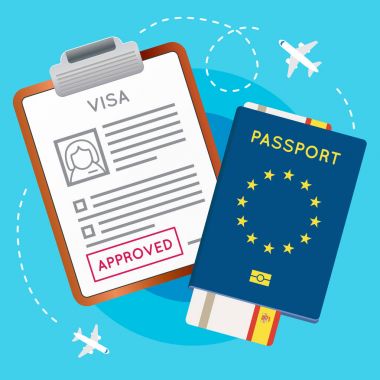
If you are planning a visit to Ghana, please review the current travel requirements and restrictions for entry into the country.
Requirements:
- Passport with at least 6 months validity and blank page for stamp
- Yellow Fever vaccine (or medical waiver)
- Travel visa issued from home country or visa on arrival
- COVID-19 restrictions vary as outlined below
COVID-19 Entry Requirements
Updated requirements from official sources are as follows:
- Based on the COVID-19 risk assessment in Ghana and global trends, the Government of Ghana has lifted existing COVID-19 travel restrictions for all arriving passengers in Ghana.
- Full COVID-19 vaccination is no longer required
- COVID-19 PCR testing for unvaccinated is no longer required
- General health safety measures like hand disinfection and wearing of nose mask are recommended in all Airport Terminals and ancillary buildings for passengers’ safety
Departure Process (Passengers Exiting Ghana)
- Passengers departing Accra will be required to adhere to COVID-19 testing requirements for the destination countries.
Updated May 20, 2023
Recent Updates
Mandatory health insurance for visitors to ghana proposed.
From July 1, 2024, non-resident visitors arriving in Ghana may be required to have a health insurance policy before entry into Ghana. …
Ghana Immigration Service Increases Prices
Ghana Immigration Service (GIS) has officially announced a revision in the cost of all services, effective May 1, 2024. The adjustment in …

The African Diaspora Resource Centre is a full service travel and relocation assistance company. We provide education, resources, and support to ensure a smooth transition to Ghana.
- Doctor Esther Ocloo St Osu, Accra - Ghana
- +233 (0)30 273 5146
- +233 (0)50 377 3262
Connect with us

- Wanderlust Ghana
- Tourism Month
- #DecemberInGH
- Kwahu Paragliding
- Visit Ghana App
- Book City Tour
- Manhyia Palace Museum
- Kpetoe Agotime Kente Village
- Ntonso Adinkra
- Daboya Fugu
- Bonwire Kente Village
- Sirigu Pottery & Art
- Forts and Castles
- Kwame Nkrumah Memorial Park
- Cape Coast Castle
- Elmina Castle
- Komfo Anokye Sword Site
- Larabanga Mosque
- Bisa Aberwa Museum
- Assin Manso Slave River
- Nakore Mosque
- Paragliding Festival
- Kakum National Park
- Legon Botanical Gardens
- Aburi Quad Biking
- Mountain Afadja (Afadjato)
- Tafi-Atome Monkey Sanctuary
- Wli Waterfalls
- Lake Bosomtwi
- Nzulezu Village On Stilt
- Bunso Eco Park
- Bobiri Forest and Butterfly Sanctuary
- Wechiau Hippo Sanctuary and River Safari
- Asogli Yam Festival
- Odwira Festival
- Greater Accra
- Beyond The Return
- Year Of Return
- Travel Information
- Flight & Transport
- Ghana Gurus
- Directory Of Licensed Enterprises
- Travel & Tours
- Ghanaian Name
- GTA Services
- DecemberInGH
- Feast Ghana
- Year of Return
- Latest News
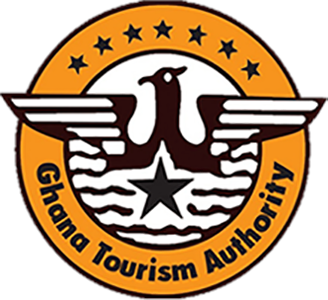
Things To Do

Attractions
The emea 30,000km expedition, wanderlust ghana., wand erlust, aug - dec 2024 . west africa, europe, uae, southern africa.

Experience our rich culture

Relive history through our heritage

Feel the warmth in 16 regions

Every experience is an Adventure
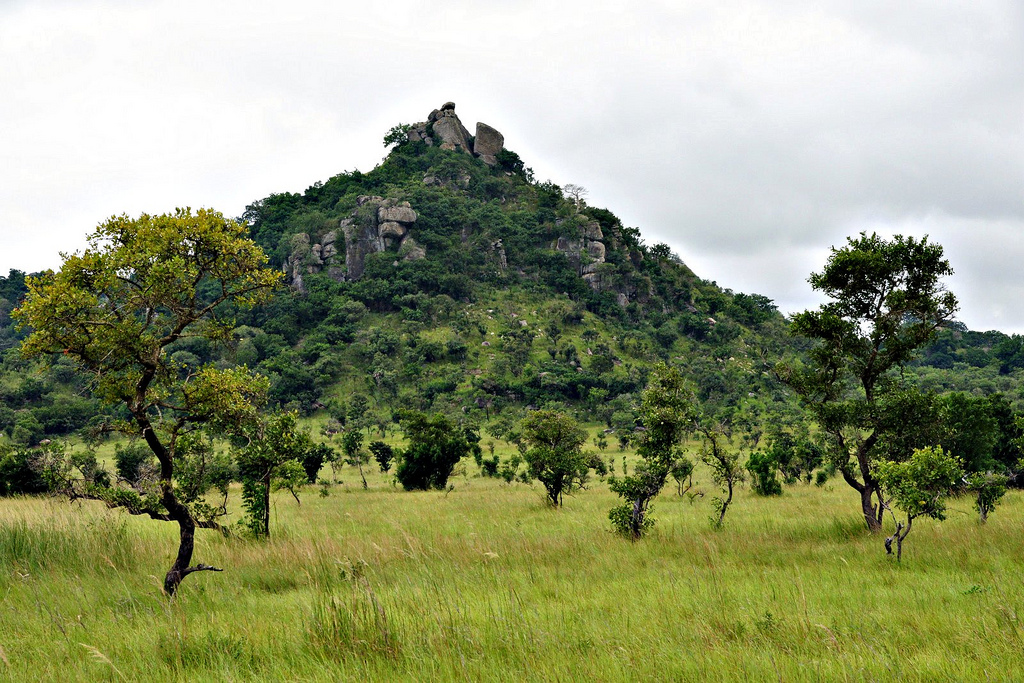
Upclose with nature throught our Ecotourism sites

Entertainment and Nightlife
Feel the rhythm with our entertaining nightlife.
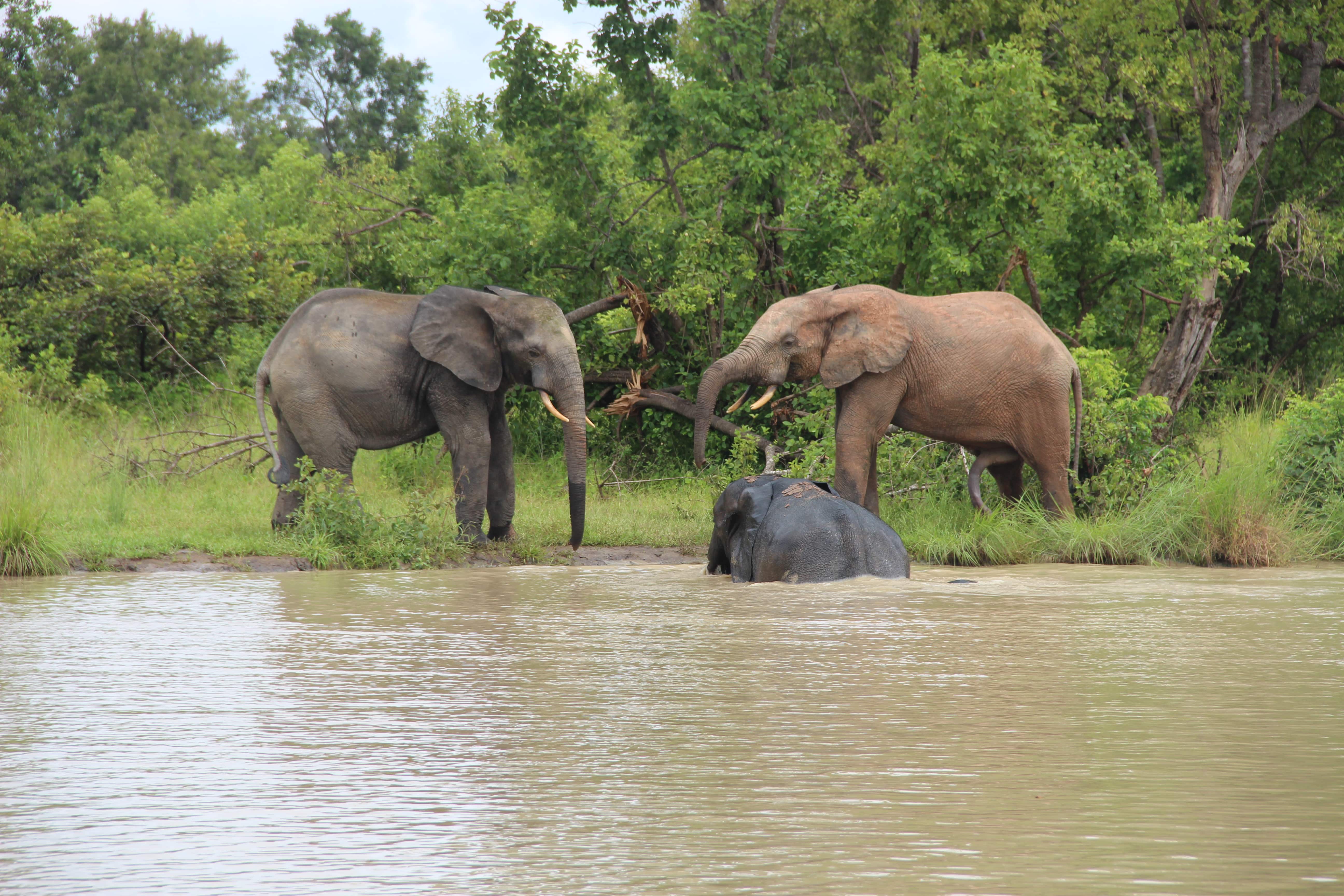
Experience the nature covens in Ghana.
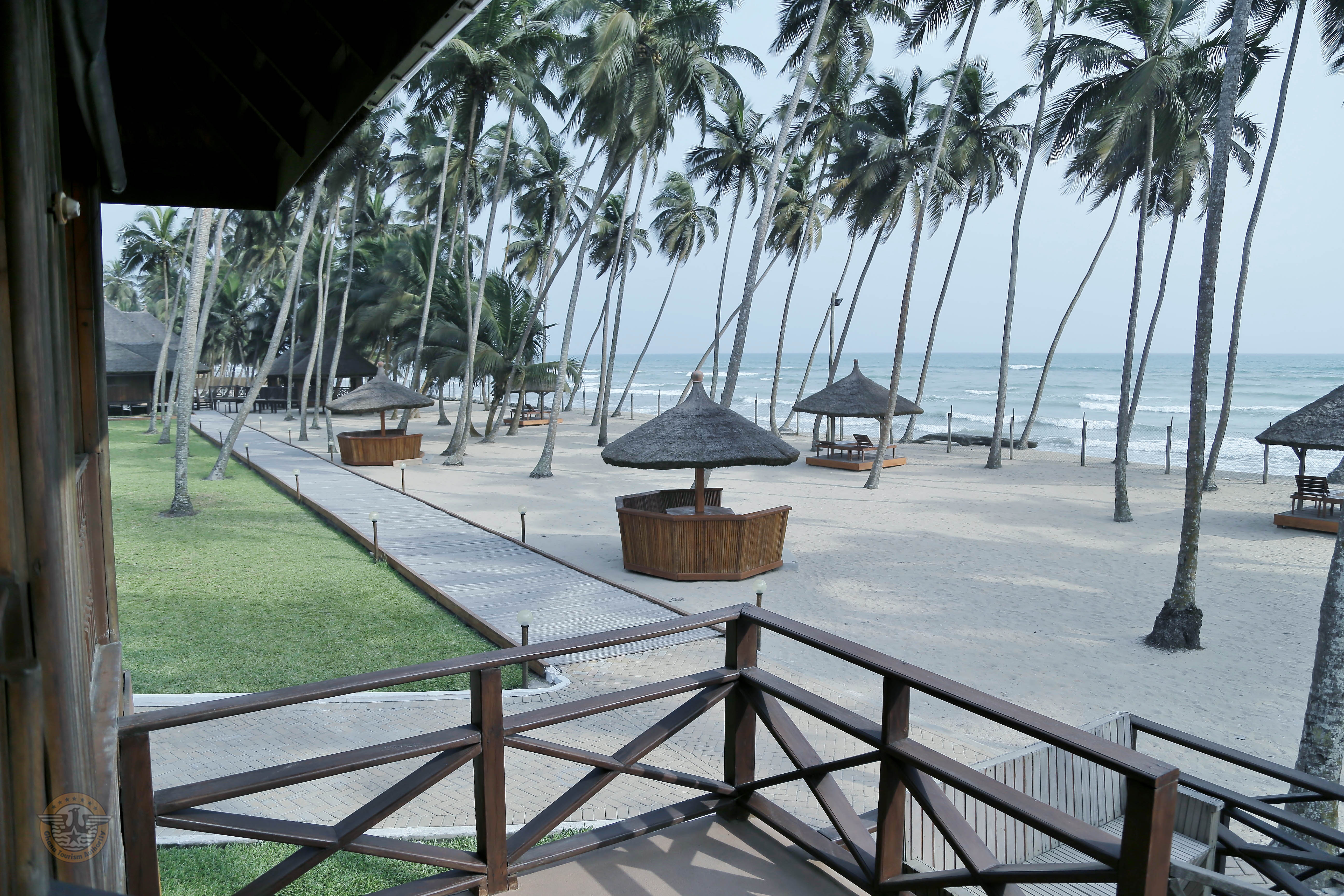
Sea, Sun & Sand
Visit the sandy shores, bask in the sun and stir the sand.

Experience festive occassions with rich cultural values
Don’t Be Told
Experience ghana.
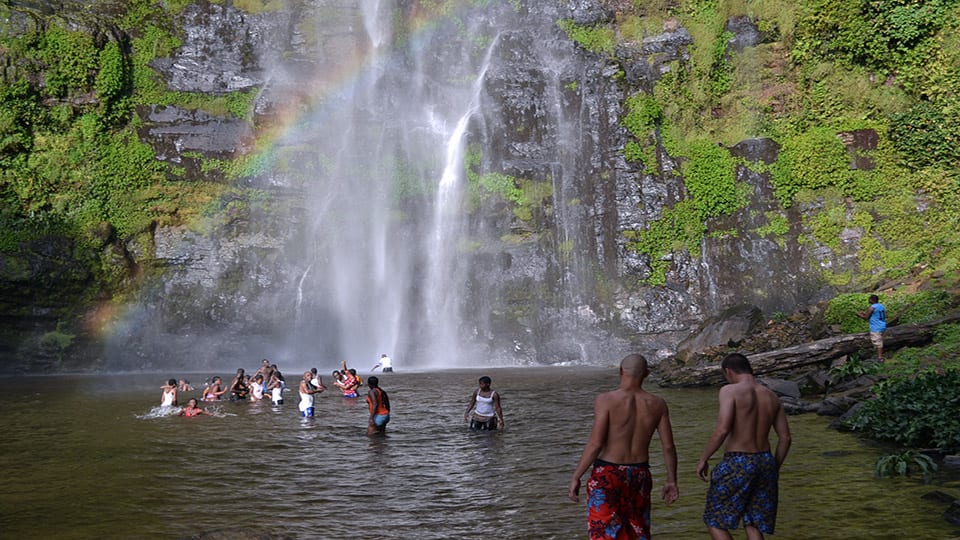
360 WLI WATERFALL
West Africa’s Tallest Waterfall, Located In The Volta Region Of Ghana.

360 CAPE COAST CASTLE
This Historic Castle Is The Largest Of The Buildings Which Contain The Legacy Of The Trans-Atlantic Slave Trade.
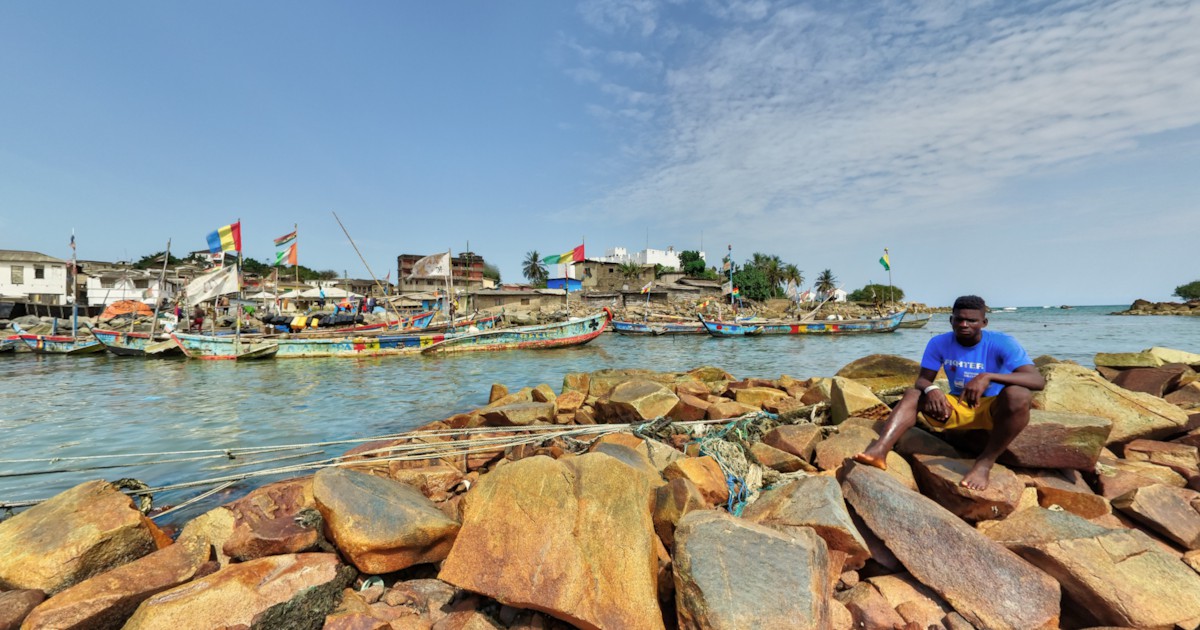
360 FORT METAL CROSS
Situated On The Shores Of A Rocky Cove, Dixcove Is A Colourful And Animated Fishing Town, Dominated By This Colonial Fort.
Explorational Stories
News and Updates
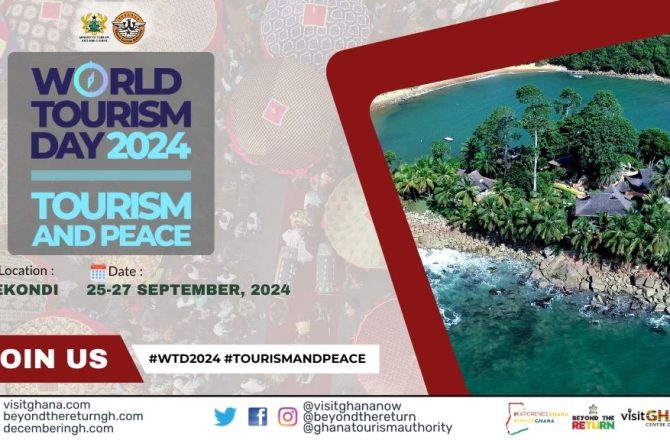
Essential Handy Tips
Travel Tips
Subscribe to receive updates on tourism attractions and happenings.

- Travel Advisories |
- Contact Us |
- MyTravelGov |
Find U.S. Embassies & Consulates
Travel.state.gov, congressional liaison, special issuance agency, u.s. passports, international travel, intercountry adoption, international parental child abduction, records and authentications, popular links, travel advisories, mytravelgov, stay connected, legal resources, legal information, info for u.s. law enforcement, replace or certify documents.
Share this page:
Ghana Travel Advisory
Travel advisory november 20, 2023, ghana - level 2: exercise increased caution.
Updated to reflect threats against LGBTQI+ travelers.
Exercise increased caution in Ghana due to crime and violence against members of the LGBTQI+ community . Some areas have increased risk. Read the entire Travel Advisory.
Exercise increased caution in:
- Parts of the Bono East, Bono, Savannah, Northern, North East, and Upper East regions due to civil unrest.
Country summary: Violent crimes, such as carjacking and street mugging, do occur. These crimes often happen at night and in isolated locations. Exercise increased caution specifically due to crime:
- In urban areas and crowded markets
- When traveling by private or public transportation after dark as criminal elements may use blockades to slow down and restrict movement of vehicles
- In areas near the northern border in the Upper East and Upper West regions
The U.S. government has limited ability to provide emergency services to U.S. citizens. Local police may lack the resources to respond effectively to more serious crimes.
LGBTQI+ Travelers: Ghanaian law contains prohibitions on “unlawful carnal knowledge” – generally interpreted as any kind of sexual intimacy – between persons of the same sex. Punishments can include fines and/or incarceration. Anti-LGBTQI+ rhetoric and violence have increased in recent years. Members of the LGBTQI+ community have reported safety incidents that include targeted assault, rape, mob attacks, and harassment due to their identity.
Read the country information page for additional information on travel to Ghana.
If you decide to travel to Ghana:
- See our LGBTQI+ Travel Information page and section 6 of our Human Rights Report for further details.
- Enroll in the Smart Traveler Enrollment Program ( STEP ) to receive alerts and make it easier to locate you in an emergency.
- Follow the Department of State on Facebook and Twitter .
- Review the Country Security Report for Ghana.
- Prepare a contingency plan for emergency situations. Review the Traveler’s Checklist .
- Visit the CDC page for the latest Travel Health Information related to your travel.
Areas Near the Northern Border in the Upper East and Upper West Regions – Level 2: Exercise Increased Caution
U.S. citizens traveling in Ghana should exercise caution while visiting border areas, in particular the northern border, and be sure to read Security Alerts affecting those areas. Due to security concerns over criminal activity in remote areas, travel of U.S. government personnel to the northern and northwestern border is currently limited.
Visit our website for Travel to High-Risk Areas .
Travel Advisory Levels
Assistance for u.s. citizens, search for travel advisories, external link.
You are about to leave travel.state.gov for an external website that is not maintained by the U.S. Department of State.
Links to external websites are provided as a convenience and should not be construed as an endorsement by the U.S. Department of State of the views or products contained therein. If you wish to remain on travel.state.gov, click the "cancel" message.
You are about to visit:

Please read all the requirements first before going to the application form
Link to visa application form is at the bottom of this page. scroll to the bottom of page and click apply online .
ONLINE APPLICATION ONLY – NO IN-PERSON SERVICE AT THE EMBASSY
VISA APPLICATION
The purpose of your journey and other factors will determine the type of visa required under Ghana immigration law. As a visa applicant, you will need to establish that you meet all requirements to receive the visa category for which you are applying.
PLEASE READ THE ENTITLEMENTS TO A GHANAIAN VISA CAREFULLY
ALL APPLICANTS MUST PAY FOR RETURN MAIL POSTAGE ONLINE. The Embassy will not be responsible for use of self addressed return envelopes and would n0t keep or provide a tracking number. You do so at your own risk.
ENTRY REQUIREMENTS FOR GHANA
All visitors to Ghana must be in possession of a valid passport or legal travel documents.
All visitors entering Ghana must have valid entry visas or, in the case of Commonwealth nationals, entry permits issued by a Ghana diplomatic mission or consulate abroad or any other visa-issuing authority mandated by the Ghana Government to act on its behalf. (ECOWAS nationals and those of other countries with which the Government of Ghana has specific bilateral agreements, are exempted).
All travelers above nine (9) months coming into or transiting through Ghana are required to have been vaccinated against Yellow Fever
CONDITIONS FOR THE ISSUE OF VISA
Visas may be granted to personnel of international organizations, agencies; and individuals visiting Ghana for tourism, study, business or on transit basis. There are two types of visas: Single entry and Multiple entries. Single-entry visas are valid for three months and must be utilized within three months from the date of issue. This type of visa can be used only one time.
Multiple entry visas are valid for more than three months, and the duration is at the discretion of the Consular officer and should/cannot be challenged. A multiple visa can be used multiple times within its duration or validity. Visitors travelling on Business are required to furnish evidence of the fact, such as a letter from their firm, while those traveling at the invitation of Ghanaian nationals/residents, or Ghanaian institutions should furnish a letter of invitation from their hosts. Tourism Applicants must provide a letter of invitation from their host in Ghana. They are required to provide a roundtrip ticket; and show proof of sufficient funds for the duration of their stay in the country. Prospective employees may undertake employment within the authorized immigrant quota. Emergency visas may be issued on arrival at entry points to travelers from countries where there are no Ghanaian diplomatic missions or consular representation, but such applications must be confirmed with the nearest Embassy or be authorized by the Director of the Immigration Service through their sponsors before they depart for Ghana. Applications for extension of duration of stay must be made through the Director of the Ghana Immigration Service for consideration. Visitors may be allowed to extend their stay for a period deemed fit if the Ghana Immigration Service is satisfied that such visitors have sufficient reason and means of financial support. Persons who enter the country as visitors are not permitted to take up employment even if there happens to be a vacancy on the Immigrant Quota of a prospective employer. Professionals (doctors, lawyers, nurses, etc.), are required to provide particulars of their qualifications so that the eligibility of their registration may be determined. Travelers are strongly advised to ensure that they have all the necessary documents before arriving in Ghana
VISA PROCESS
All visa applications MUST be completed online at www.ghanaembassydc.org.
Procedure/s
- On the website, www.ghanaembassydc.org, click on VISA & PASSPORTS and click on visa and passport application to complete the form.
- There are 6 Steps to the visa application form
- The questions with the Red asterisks are mandatory. If there are no red asterisks (*) you can put a checkmark on the NA box on the right-hand side..
- After completing the visa application, download and print the application.
- Mail the actual passport with the printed copy of the visa application, one (1) current passport-size photograph, and all the required supporting documents to the Embassy.
- Please print your payment receipts. ( Visa Application fee and Return Postage) and attach to your visa application form
- For Children: Parents must complete the child’s visa application form, add the 1 passport-size photograph, and the required supporting documents, which are: a Photocopy of the child’s birth certificate; a signed and notarized consent letter by both parents, as well as copies of both parents’ picture IDs.
- Your package should be mailed to either one of the following addresses (Regular or Expedited Service)
Embassy of Ghana Consular Section (Expedited) 3512 International Dr. NW Washington, DC 20008
Embassy of Ghana Consular Section (Regular) 3512 International Dr. NW Washington, DC 20008
- NOTE: Visas will not be issued in passports which will expire in less than six (6) months.
PROHIBITED IMMIGRANTS
The under-mentioned categories are Prohibited Immigrants:
A person of unsound mind.
A person declared by medical personnel as medically unsound.
A person is considered to be a security risk.
A person against whom there is a deportation order in force.
A person who has been sentenced in a foreign country for extradition under the Extradition Act 1960.
INOCULATIONS
All travelers above nine (9) months old coming into Ghana are required to have been vaccinated against Yellow fever.
Yellow fever is an acute viral infection transmitted by the Aedes Aegypti mosquitoes. It is endemic and epidemic in several countries in Africa, South America and Caribbean Islands. Case fatality rate is high in classic yellow fever epidemics. There is no curative medical treatment but it is highly preventable by vaccination. The International Health Regulations IHR2005 involves the following:
Ghana is one of the countries at risk of Yellow Fever transmission, hence the need for all travelers (including those coming from countries with no risk to yellow fever) to Ghana to have a valid yellow fever vaccination certificate or records indicating their protection from yellow fever.
As a result, Health officials at all ports of entry carry out vigorous checks on travel documents with respect to Yellow fever vaccination certificates in accordance with Article 36 and Annex 6 as depicted above.
PROCESSING FEES
ACCEPTABLE PAYMENT METHODS
Pay the passport application fee online ( https://ghanaembassydc.org/visapay) Please print and attach the receipt to the application form when mailing
Personal Checks and Money Orders are not accepted. Blank Money Orders/ Bank Drafts will not be accepted. Please do not post/mail cash.
REFUND POLICY
Passport and Visa application fees are non-refundable whether your application is approved or not.
PROCESSING PERIOD
Please note that a standard application will take 15-20 business days from receipt of a hardcopy of the application at the Mission. The processing period for Rush applications is 7 business days.
EXEMPTED COUNTRIES
CATEGORIES OF PERSONS EXEMPT FROM ENTRY VISA REQUIREMENTS TO GHANA – 2024 UPDATE All ECOWAS Passport Holders: Benin Burkina Faso Cape Verde Côte d’Ivoire The Gambia, Guinea Bissau Guinea, Guinea-Bissau Liberia Mali Niger Nigeria Senegal Sierra Leone Togo
HOLDERS OF DIPLOMATIC, SERVICE OR OFFICIAL PASSPORTS
Brazil, Cuba, Germany, Iran, Namibia, China, South Africa, Sudan, Hungary, India, Equatorial Guinea, Morocco
NB: Exemptions category B above shall be for a period not exceeding ninety (90) days from date of entry
All nationals of the following countries: Jamaica, Kenya , Lesotho, Malawi, Singapore, Tanzania, Trinidad and Tobago, Uganda
Holders of passports of Regional Economic Communities in Africa and the African Economic Community United Nations and its Specialized Agencies: The World Bank , African Development Bank
Persons in direct Airside transit All persons in direct airside transit are exempt from visa requirements
GRATIS VISAS
The following are entitled to Gratis Visas to Ghana
Holders of Diplomatic/ Service Passports
Citizens of Malawi
Travelers are strongly advised to ensure that they have all the necessary documents before arriving in Ghana
APPLY ONLINE
Cookies on GOV.UK
We use some essential cookies to make this website work.
We’d like to set additional cookies to understand how you use GOV.UK, remember your settings and improve government services.
We also use cookies set by other sites to help us deliver content from their services.
You have accepted additional cookies. You can change your cookie settings at any time.
You have rejected additional cookies. You can change your cookie settings at any time.
Before you travel check that:
- your destination can provide the healthcare you may need
- you have appropriate travel insurance for local treatment or unexpected medical evacuation
This is particularly important if you have a health condition or are pregnant.
Emergency medical number
Call 999 or 112 and ask for an ambulance.
Contact your insurance company quickly if you’re referred to a medical facility for treatment.
Vaccine recommendations and health risks
At least 8 weeks before your trip:
- check the latest vaccine recommendations for Ghana
- see where to get vaccines and whether you have to pay on the NHS travel vaccinations page
See what health risks you’ll face in Ghana , including:
- yellow fever
Marburg virus
In September 2022, Ghana declared an end to the Marburg virus disease outbreak that was first reported in July 2022. See more details about the outbreak and more information on Marburg virus and similar diseases .
The legal status and regulation of some medicines prescribed or bought in the UK can be different in other countries.
Read best practice when travelling with medicines on TravelHealthPro .
Healthcare in Ghana
Medical facilities are poor outside towns. For serious medical treatment, medical evacuation will be necessary. Make sure you have adequate travel health insurance and accessible funds to cover the cost of any medical treatment abroad and repatriation.
FCDO has a list of medical providers in Ghana .
There is also guidance on healthcare if you’re living in Ghana .
Travel and mental health
Read FCDO guidance on travel and mental health . There is also mental health guidance on TravelHealthPro .
Related content
Is this page useful.
- Yes this page is useful
- No this page is not useful
Help us improve GOV.UK
Don’t include personal or financial information like your National Insurance number or credit card details.
To help us improve GOV.UK, we’d like to know more about your visit today. Please fill in this survey (opens in a new tab) .
Travel Vaccines and Advice for Ghana

Ghana is considered a good and welcoming place, especially for first-time travelers to Africa. Tourism is a growing industry in Ghana.
Ghana presents a lot of opportunities to experience Africa through national parks, nature reserves and villages.
English is the official language of Ghana. But, not always the primary language people speak. Local languages also include Ga, Twi and Ewe.
The largest city, Accra is also the capital city of Ghana. Accra is a growing city with modern amenities of hotels, restaurants and a vast number of museums.
On This Page: Do I Need Vaccines for Ghana? Other Ways to Stay Healthy in Ghana Do I Need a Visa or Passport for Ghana? What Is the Climate Like in Ghana? Is It Safe to Travel to Ghana? Coastal Forts in Ghana What Should I Take to Ghana? U.S. Embassy in Ghana
Do I Need Vaccines for Ghana?
Yes, some vaccines are recommended or required for Ghana. The CDC and WHO recommend the following vaccinations for Ghana: typhoid , hepatitis A , polio , yellow fever , rabies , hepatitis B , meningitis , influenza , COVID-19 , pneumonia , chickenpox , shingles , Tdap (tetanus, diphtheria and pertussis) and measles, mumps and rubella (MMR) .
See the bullets below to learn more about some of these key immunizations:
- Typhoid – Food & Water – Shot lasts 2 years. Oral vaccine lasts 5 years, must be able to swallow pills. Oral doses must be kept in refrigerator.
- Hepatitis A – Food & Water – Recommended for most travelers.
- Polio – Food & Water – Due to an increase in cases globally, an additional adult booster is recommended for most travelers to any destination.
- Yellow Fever – Mosquito – Required for all travelers over 9 months of age.
- Rabies – Saliva of Infected Animals – High risk country. Vaccine recommended for long-term travelers and those who may come in contact with animals.
- Hepatitis B – Blood & Body Fluids – Recommended for travelers to most regions.
- Meningitis – Airborne & Direct Contact – Located in the meningitis belt, vaccination is recommended during the dry season (Dec. – June)
- Influenza – Airborne – Vaccine components change annually.
- COVID-19 – Airborne – Recommended for travel to all regions, both foreign and domestic.
- Pneumonia – Airborne – Two vaccines given separately. All 65+ or immunocompromised should receive both.
- Chickenpox – Direct Contact & Airborne – Given to those unvaccinated that did not have chickenpox.
- Shingles – Direct Contact – Vaccine can still be given if you have had shingles.
- Polio – Food & Water – Considered a routine vaccination for most travel itineraries. Single adult booster recommended.
- TDAP (Tetanus, Diphtheria & Pertussis) – Wounds & Airborne – Only one adult booster of pertussis required.
- Measles Mumps Rubella (MMR) – Various Vectors – Given to anyone unvaccinated and/or born after 1957. One time adult booster recommended.
See the table below for more information:
Specific Vaccine Information
- Typhoid – Typhoid fever, a bacterial infection caused by Salmonella Typhi, spreads through contaminated food and water sources. Vaccination is recommended for travelers and those at risk, along with maintaining good hygiene and food safety.
- Hepatitis A – Contagious hepatitis A, caused by the hepatitis A virus (HAV), spreads through contaminated food, water, or close contact. Prevention involves vaccination and practicing good hygiene, particularly when traveling to high-risk areas.
- Yellow Fever – Vaccination is the cornerstone of yellow fever prevention. The live, attenuated yellow fever vaccine is highly effective and provides lifetime immunity. It is a crucial measure for individuals traveling to or residing in areas where the disease is endemic, as it combats the primary mode of transmission via infected mosquitoes.
- Rabies – Rabies is a deadly viral disease affecting mammals, including humans, primarily transmitted through bites or scratches from infected animals. Vaccination is key to preventing rabies, with pre-exposure shots effectively preventing infection.
- Hepatitis B – Hepatitis B, a liver infection transmitted through infected fluids, can be prevented through safe practices and the hepatitis B vaccine. The vaccine prompts the immune system to produce antibodies, offering robust and long-lasting protection against the virus.
- Meningitis – Meningitis is an inflammation of the brain and spinal cord membranes, often caused by viral or bacterial infections. The meningitis vaccine effectively protects against various types of meningitis, especially bacterial, crucial for preventing serious complications like brain damage or even death.
- Measles, Mumps, Rubella (MMR) – Measles, mumps, and rubella are highly contagious diseases with potentially severe consequences. Preventing their transmission is possible through vaccination with the MMR vaccine. This two-dose vaccine not only safeguards individuals but also helps create herd immunity, reducing the risk of outbreaks within communities.
Yellow Fever in Ghana
While proof of yellow fever vaccination is not required for entry to Ghana, it is highly recommended. Yellow fever transmission is widespread throughout Ghana, some countries may require proof of immunization when traveling to them from Ghana.
Malaria in Ghana
Malaria is present in all regions of Ghana. Travelers are advised to take antimalarials no matter their destination or itinerary in the country. Malaria in Ghana is chloroquine resistant, be sure to speak with a travel health specialist on which antimalarial is best for your trip.
Outside of Accra, access to medical facilities is limited. Make sure to bring any prescriptions you will need.
Visit our vaccinations page to learn more. Travel safely with Passport Health and schedule your appointment today by calling or book online now .
Other Ways to Stay Healthy in Ghana
Prevent bug bites in ghana.
Protect yourself from bug bites by wearing long clothing and using CDC-recommended repellents like DEET or picaridin. Avoid bug-prone areas during peak hours to reduce the risk.
Food and Water Safety in Ghana
Safeguard your health while abroad by consuming cooked and hot foods, opting for bottled or sealed drinks, and practicing proper hand-washing. Limit your exposure to risky local dishes. To prevent travelers’ diarrhea , maintain these precautions: eat carefully prepared foods, avoid untreated water, sanitize your hands, consider probiotics, and exercise caution with unfamiliar cuisine.
Infections To Be Aware of in Ghana
- African Tick-Bite Fever – African Tick-Bite Fever (ATBF) spreads through tick bites. Protect yourself by wearing long clothing, applying insect repellent, and conducting thorough tick checks. Consult healthcare providers for options before traveling to affected areas.
- Dengue – Dengue fever, a viral infection spread by mosquitoes, is characterized by symptoms like high fever and rash. Prevention involves protective measures against mosquito bites and eliminating breeding sites. For those affected, seeking prompt medical care, staying hydrated, and using specific pain relievers under guidance is essential for recovery.
- Lassa Fever – Lassa fever, endemic in West Africa, is caused by the Lassa virus and transmitted through rodents and direct human contact. Prevention efforts include good hygiene practices, and healthcare workers’ vigilance to control its spread.
- Leishmaniasis – Leishmaniasis, transmitted by sand fly bites, can be prevented by adopting protective measures such as using insect repellents, covering exposed skin, and staying indoors when sand flies are active.
- Schistosomiasis – Schistosomiasis, a parasitic disease transmitted through contaminated water, poses a health risk. Prevention strategies include avoiding freshwater activities and wearing protective clothing. Prompt medical attention is necessary if symptoms like fever or abdominal pain occur.
Do I Need a Visa or Passport for Ghana?
A passport and visa are required for travelers going to Ghana. It is best to start this process well in advance of your trip to ensure all documents are fully processed before you leave.
Documentation of yellow fever vaccination is required for entry to Ghana.
Sources: Embassy of Ghana and U.S. State Department
Travelers over the age of six-years-old that have been traveling in Ghana for over 90 days are required to register with the National Identification Authority (NIA). Travelers will receive a Non-citizen Ghana card that will be required for transactions that require identification.
What Is the Climate Like in Ghana?
Ghana is a country with many popular tourist destinations, and each has its own unique weather patterns. The capital city, Accra, has a tropical savanna climate with temperatures ranging from 75 to 90 degrees throughout the year. The rainy season there is from April to July, with heavy downpours in June and July. Cape Coast, a coastal city, has the same climate as Accra, and its rainy season is from May to September.
Kumasi, the cultural capital of Ghana, has a tropical wet and dry climate with temperatures ranging from 70 to 85, and its rainy season runs from April to October. Tamale, a northern city, has a tropical wet and dry climate with temperatures ranging from 80 to 100, and its rainy season runs from May to October.
It’s important to remember that the weather can vary from day to day. It’s a good idea to check the weather forecast before traveling to Ghana, especially during the rainy season.
Is It Safe to Travel to Ghana?
Ghana is facing an increased threat from terrorist groups. Kidnapping that target Westerners have occurred in Cote d’Ivoire, Burkina Faso, Niger, and Mali.
Petty crime and scams are the most common crime that travelers face. Armed robbery and money solicitations at airports are on the rise.
Always remember to travel in groups and avoid traveling at night.
Homosexuality is illegal in Ghana and imprisonment can be from 3-10 years.
Remember that local authorities are responsible for investigating and prosecuting crime.
Coastal Forts in Ghana
Avoid an embarrassing stop, over 70% of travelers will have diarrhea., get protected with passport health’s travelers’ diarrhea kit .
The coastal forts of Ghana are a page out of history that helped create progress in Ghana’s modern world.
One of the largest forts in Ghana is the Cape Coast Castle that overlooks the sea. It was one of the world’s largest slave-holding sites and it still reflects the horror of that time.
The castle holds dungeons where slaves were held up to twelve weeks. In contrast, the castle also has a lavish governor’s bedroom to illustrate the inequality of the age.
Other forts to check out in Ghana include Fort Metal Cross, Fort Batenstein and Osu Castle.
What Should I Take to Ghana?
When traveling to Ghana, it’s important to pack some essential items to have a safe and comfortable trip. Here is a list of what to bring:
- Passport and visas: Make sure you have a valid passport and any necessary visas for entry into Ghana.
- Travel documents: Carry copies of your travel documents, including your passport, travel insurance and emergency contact information.
- Vaccination certificate: Make sure you have proof of vaccination against yellow fever, as it is required for entry into Ghana. Other vaccinations, such as for hepatitis A and B, are also recommended.
- Clothing: Pack lightweight, breathable clothing such as cotton shirts, shorts, and skirts. Bring comfortable walking shoes, sandals, and a hat to protect you from the sun.
- Insect repellent: Mosquitoes can be a problem in Ghana, bring insect repellent containing DEET.
- Power adapter: Bring a universal power adapter.
- Money: Bring some local currency for small purchases. You can also bring a debit or credit card to withdraw cash from ATMs or make purchases at larger establishments.
- Sunscreen: Protect your skin from the sun’s harmful rays with a high SPF sunscreen.
Remember to pack light and bring appropriate clothing for the climate. Don’t be afraid to ask locals for recommendations on what to do and see in Ghana.

U.S. Embassy in Ghana
The U.S. embassy in Ghana provides services for travelers, including passport and visa services, emergency assistance and cultural and educational programs. The embassy also provides security services and updates on security situations in Ghana.
If you find yourself in need of help while traveling in Ghana, there is a U.S. embassy in the capital city of Accra.
U.S. Embassy Accra No. 24 Fourth Circular Road, Cantonments, Accra, Ghana Telephone: +233-(0)30-274-1000 Emergency After-Hours Telephone: +233-(0)30-274-1000 Email: [email protected]
Visit the Embassy to Ghana website before departure to confirm correct contact details for the office.
If you have any questions about traveling to Ghana or are wondering what shots you may need for your trip, schedule an appointment with your local Passport Health travel medicine clinic. Call us at or book online now! and protect yourself today.
Customer Reviews
Passport health – travel vaccines for ghana.

- Records Requests
- Passport Health App
- Privacy Center
- Online Store

Search Smartraveller

Latest update
Exercise a high degree of caution in Ghana overall due to the threat of crime.
Higher levels apply in some areas.
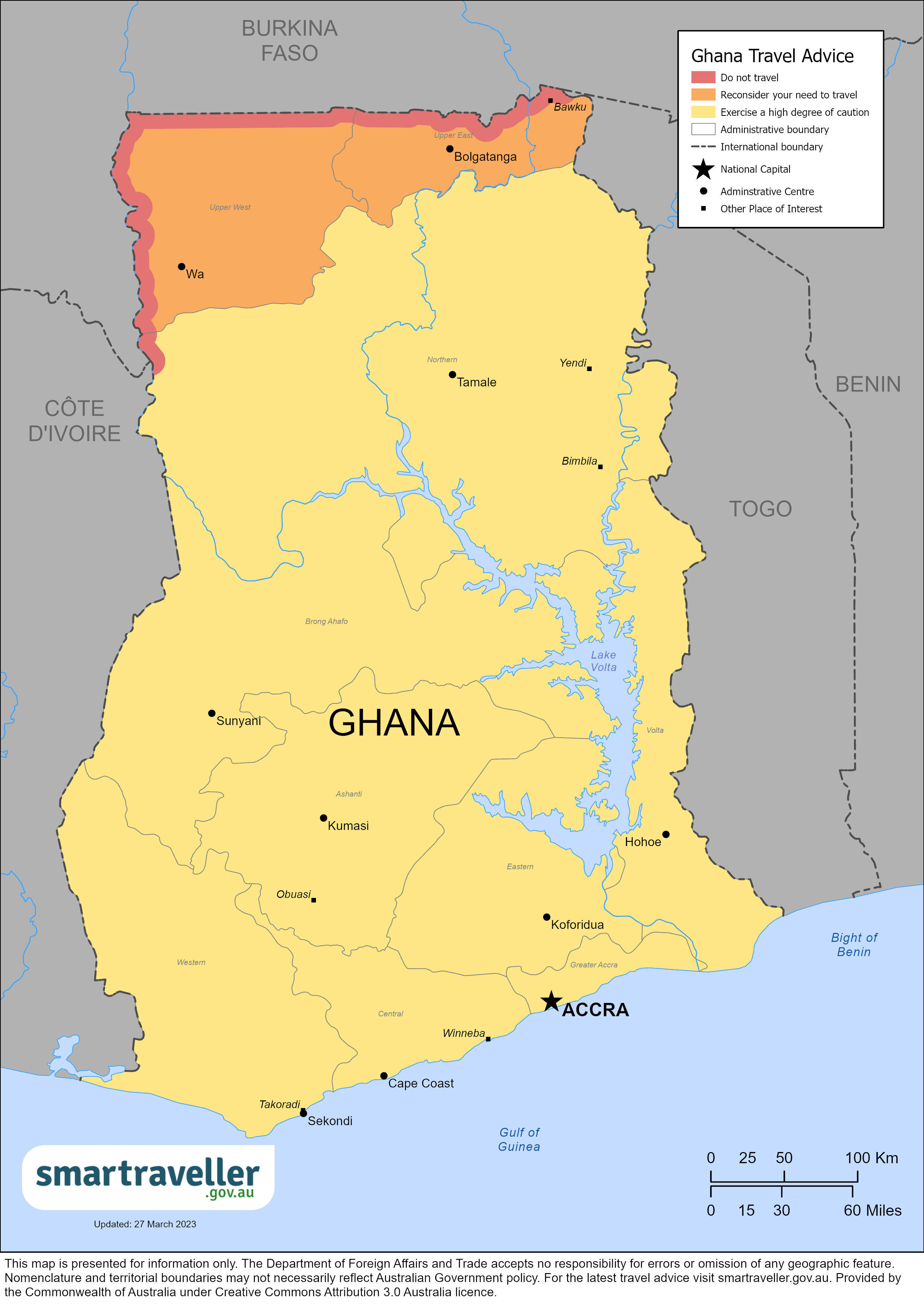
Ghana (PDF 253.16 KB)
Africa (PDF 1.77 MB)
Local emergency contacts
Fire and rescue services, medical emergencies.
Call 193 or go to the hospital.
Call 191 or go to the nearest police station.
Advice levels
Exercise a high degree of caution in Ghana overall.
Do not travel to the northern border with Burkina Faso.
Do not travel to the northern border with Burkina Faso due to the threat of attacks and kidnapping from terrorists and other groups active in Burkina Faso.
See Safety .
Reconsider your need to travel to the Upper East and Upper West regions.
Reconsider your need to travel to the Upper East and Upper West regions due to the heightened risk of terrorist attacks in Ghana’s northern border areas and the ongoing chieftaincy conflict in Bawku.
- There's been an increase in reported incidents of banditry involving passenger buses travelling in the Upper West and Upper East regions resulting in injuries and deaths. In January, unidentified gunmen attacked a bus travelling on the Walewale-Bolgatanga highway, resulting in several injuries.
- If you're travelling to Ghana, you could be a target for crime, including kidnapping and robbery. There are increased security risks if you're a woman travelling alone. Take particular care in and around Accra.
- There's a heightened risk of terrorist attacks in the northern areas of Ghana bordering Côte d’Ivoire, Togo and Burkina Faso. Be alert to possible threats, especially in public places, and follow the advice of local authorities.
- Avoid demonstrations and protests. Large public events and intercommunity disputes can turn violent. Be cautious around large crowds, including at football matches.
- Internet scams often originate in West African countries. Criminals may ask for details of safe bank accounts to transfer large amounts of money. Criminals often meet their victims through internet dating sites or chat rooms. Be wary of online contact from people you don't know. Don't send money until you've checked who you're sending it to. Don't travel to Ghana to get your money back or to get revenge.
Power outages may occur after dark. This often leads to more crime, especially if street and traffic lights fail.
- Officials or people posing as officials may try to extort money from foreigners, including at the airport. Legitimate airport staff wear a current ID card with their name and photograph.
Full travel advice: Safety
- There's currently an outbreak of Mpox (formerly known as monkeypox) in parts of Africa. Mpox can be fatal. Maintain strict hygiene standards and avoid physical contact with anyone who has Mpox (see ‘Health risks’).
- Yellow fever, malaria and other insect-borne diseases are common, as are waterborne, foodborne and other infectious diseases, such as cholera, hepatitis , lassa fever, dengue fever, meningococcal meningitis, bilharzia and tuberculosis. Avoid insect bites, ice cubes, and raw or undercooked food. Drink boiled or bottled water. Consider what vaccinations and medicine you need.
- Lassa fever may be a risk when you have contact with rodents or with food or household items contaminated with rodent droppings.
- HIV/AIDS is common in Ghana. Take precautions if you're engaging in high-risk activities.
- If there is a serious outbreak of infectious disease, follow the advice of local authorities.
- Medical and emergency services are very limited. You may need to pay cash up front, even in an emergency. Make sure you have the right insurance and enough money to cover all your costs.
Full travel advice: Health
- You're subject to all local laws and penalties, including those that may appear harsh by Australian standards. Some activities that are legal in Australia are illegal in Ghana.
- Penalties for drug offences are severe. They include mandatory jail terms.
- Engaging in same-sex activity is illegal and could lead to prison sentences. LGBTQIA+ relationships and identities are widely regarded as unacceptable. Violence, threats, extortion, eviction and arbitrary arrest of LGBTQIA+ people occur, and the debate around an anti-LGBTQIA+ bill has increased these risks to the LGBTQIA+ community. LGBTQIA+ travellers should consider travel plans and personal security carefully.
- Ghana recognises dual nationality. Always travel on your Australian passport.
Full travel advice: Local laws
- You need a visa to travel to Ghana. If you're staying for more than 90 days in 12 months, you must register for a National Identification Authority Non-citizen Ghana card . Entry and exit conditions can change at short notice. You should contact the nearest high commission/embassy or consulate of Ghana for the latest details.
- You need to show a valid yellow fever vaccination certificate to enter Ghana. You may also need to show it when you leave.
- There's increased reporting of incidents involving passenger buses travelling in the Upper West and Upper East regions resulting in injuries and deaths.
- Road safety and driving in Ghana can be dangerous. Police roadblocks are common. Carry photo ID, vehicle registration and ownership papers. Be alert to hazards, especially at night. Only use registered taxis and limousines. Arrange these through your hotel. Due to safety and security concerns, don't use public transport or taxis hailed on the street.
Full travel advice: Travel
Local contacts
- The Consular Services Charter tells you what the Australian government can and can't do to help when you're overseas.
- For consular help, contact the Australian High Commission, Accra .
- To stay up to date with local information, follow the High Commission’s social media accounts.
Full travel advice: Local contacts
Full advice
If you're travelling to Ghana, you could be a target for:
- bag snatching
- petty theft
- pickpocketing
Your risk increases if you're a woman travelling alone. Take particular care in and around Accra.
Some taxi passengers have been robbed by drivers.
Attacks on passengers in vehicles are also on the increase. Take particular care when stationary. Keep windows up and doors locked. Some of these attacks on vehicles also involve the use of weapons.
Criminals may also target you in:
- house invasions
- armed robbery (including in a taxi)
- other violent crimes
Officials or people posing as officials may try to detain foreigners or extort money from them, including at the airport. Legitimate airport staff wear a current ID card with their name and photograph.
To protect yourself from crime:
- only use registered taxis or limousines, arrange these through your hotel
- don't use taxis hailed on the street or other public transport
- don't walk alone, particularly in the evening and at night
- avoid travelling alone, especially if you're a woman
- keep your car windows up and doors locked, even when moving
- be alert when approaching traffic lights
- lock your accommodation, including when you're inside
Scams and fraud
Internet scams come in many forms, including romance, friendship, business and employment opportunities. These scams often originate in West African countries.
If you travel to West Africa as a scam victim, you're at risk of:
- financial loss
This includes travelling to meet a friend or love interest, as well as trying to seek compensation or revenge.
Common fraud schemes fall into two main categories — commercial and relationship scams.
In commercial scams, criminals ask for details of 'safe' bank accounts to transfer large amounts of money. They may:
- promise a percentage of this amount to you
- send fake cashier cheques for urgent goods shipments
- request large fees for a fake government contract
- extort money from you for a bogus business opportunity
In relationship scams, criminals often meet their victims through internet dating sites, chat rooms or social media. Once they've made a connection with you, they may:
- ask you to send money so they can come to Australia
- ask you to come to Africa to meet them
Once you transfer money, the relationship often ends. If you travel to Africa to meet the criminals, you may be in danger.
To protect yourself from scams:
- be wary of online contact from people you don't know
- don't send money to anyone until you've thoroughly checked details about them
If you suspect a scam, get legal advice.
Don't travel to Ghana to get your money back or to get revenge. You could be in danger.
Cyber security
You may be at risk of cyber-based threats during overseas travel to any country. Digital identity theft is a growing concern. Your devices and personal data can be compromised, especially if you’re connecting to Wi-Fi, using or connecting to shared or public computers, or to Bluetooth.
Social media can also be risky in destinations where there are social or political tensions, or laws that may seem unreasonable by Australian standards. Travellers have been arrested for things they have said on social media. Don't comment on local or political events on your social media.
More information:
Cyber security when travelling overseas
Civil unrest and political tension
Chieftaincy conflicts, land disputes and political tension can lead to localised inter-ethnic violence and civil unrest throughout Ghana, especially in Upper West and Upper East Regions.
Due to the ongoing chieftaincy conflict in Bawku, there's an increased risk of politically motivated attacks in the Upper West and Upper East Regions.
There's been an increase in reported incidents of banditry involving passenger buses travelling in the Upper West and Upper East regions resulting in injuries and deaths. In January 2024, unidentified gunmen attacked a bus travelling on the Walewale-Bolgatanga highway, resulting in several injuries.
Pay attention to your personal safety and surroundings.
Be cautious around large public gatherings like football matches.
Disputes involving local ethnic groups can also turn violent.
Demonstrations and protests
Protests, demonstrations and strikes can occur with little warning, in response to political or economic issues. Strikes may affect essential services across Ghana. Public protests and events that draw large groups of people can turn violent.
When you're in Ghana:
- avoid protests, rallies and demonstrations
- if you encounter a protest or unrest, leave if it's safe to do so
- monitor the media for reports of unrest, and avoid those areas
- follow the advice of local authorities
Be prepared to change your travel plans in case of protests or strikes. If your travel plans are affected, you can contact your:
- travel agent
- travel insurer
Demonstrations and civil unrest
Terrorism is a threat worldwide. This includes in Ghana. There's a heightened risk of terrorist attacks in the northern areas of Ghana bordering Côte d’Ivoire, Togo and particularly Burkina Faso, where terrorists, other armed groups and militias are active.
An attack could happen anywhere and at any time.
- consider likely targets and level of security provided, including places visited by foreigners, such as shopping centres.
- always be alert to possible threats, especially in public places.
- report any suspicious items or activities to the police.
To protect yourself from being involved in a terrorist attack:
- monitor the media for possible threats
- take official warnings seriously
If there’s a terrorist attack:
- leave the affected area immediately if it’s safe to
- avoid the area afterwards in case of more attacks
Kidnapping occurs across the world with political, ideological and criminal motives. Foreigners, including Australians, have been kidnapped overseas whilst travelling, including in Ghana. Kidnapping can happen anywhere, anytime, including in destinations that are typically lower risk.
Criminals increasingly target foreigners for violent crime in Ghana. This includes kidnapping . Scammers may kidnap you to seek a ransom for your release.
There is a threat of kidnapping across Ghana. The risk is higher in northern Ghana, including the Upper West and Upper East regions. If, despite our advice, you travel to an area with a high risk of kidnapping, our ability to provide consular assistance may be limited.
To reduce the risk of kidnapping:
- always be alert to your personal security and surroundings, particularly at night
- get professional security advice for travel to locations with a heightened kidnap risk
- check your accommodation has appropriate security measures
- avoid isolated locations, particularly when travelling alone
- avoid predictable movements. Vary travel routes and times, particularly on your usual routes
- notify family or friends of planned travel and share your location
- avoid talking about your money or business affairs
- don't display money or valuables
- use ATMs inside banks, hotels and shopping centres during daylight hours
- avoid giving personal details to strangers online or over the phone
- always use licensed taxi services arranged through your hotel
- when travelling by road, keep windows up and doors locked, especially at night
The Australian Government's longstanding policy is that it doesn't make payments or concessions to kidnappers. Ransom payments to kidnappers have funded further terrorist attacks and criminal activity. Paying a ransom to terrorist groups will likely break Australian counter-terrorism financing laws.
See the 'Crime' section under 'Safety' for more details.
More information:
Climate and natural disasters
Ghana experiences natural disasters and severe weather , including flooding.
If there's a natural disaster or severe weather:
- secure your passport in a safe, waterproof location
- keep in contact friends and family
Register with the Global Disaster Alert and Coordination System for alerts.
The wet season is from May to October.
Flooding may happen in the:
- Northern region
- Upper East region
- Upper West region
Roads can shut quickly, stranding travellers.
If you travel during the wet season or after a natural disaster, check if services at your planned destination have been affected.
Travel insurance
Get comprehensive travel insurance before you leave. Your policy needs to cover all overseas medical costs, including medical evacuation. The Australian Government won't pay for these costs.
If you can't afford travel insurance, you can't afford to travel. This applies to everyone, no matter how healthy and fit you are.
If you're not insured, you may have to pay many thousands of dollars up-front for medical care.
- what activities and care your policy covers
- that your insurance covers you for the whole time you'll be away.
Physical and mental health
Consider your physical and mental health before you travel, especially if you have an existing medical condition.
See your doctor or travel clinic to:
- have a basic health check-up
- ask if your travel plans may affect your health
- plan any vaccinations you need.
Do this at least eight weeks before you leave.
If you have immediate concerns for your welfare, or the welfare of another Australian, call the 24-hour Consular Emergency Centre on +61 2 6261 3305 or contact your nearest Australian Embassy, High Commission or Consulate to discuss counselling hotlines and services available in your location.
- General health advice
- Healthy holiday tips (Healthdirect Australia)
Not all medication available over the counter or by prescription in Australia is available in other countries. Some may even be considered illegal or a controlled substance, even if prescribed by an Australian doctor.
If you plan to bring medication, check if it's legal in Ghana. Take enough legal medication for your trip.
Carry a copy of your prescription or a letter from your doctor stating:
- what the medication is, including its generic name
- your required dosage
- that it's for personal use.
Health risks
Mpox (formerly known as monkeypox)
The World Health Organisation (WHO) has declared the current Mpox outbreak in parts of Africa as a global public health emergency. It has now spread across a number of countries in Africa, including Ghana.
Mpox can be transmitted to humans through physical contact with an infectious person, infected animals or contaminated materials.
Symptoms include:
- sore throat
- muscle aches
- swollen lymph nodes
Seek professional medical advice on Mpox vaccines.
Maintain strict hygiene standards. Avoid physical contact with anyone who has Mpox.
See a doctor if you feel unwell and isolate from others if you develop any Mpox symptoms.
- Mpox (Australian Government)
Insect-borne diseases
Yellow fever is common in Ghana. Yellow fever is a potentially fatal virus spread by mosquitoes. It's prevented by vaccination. Get vaccinated before you travel.
Malaria and other insect-borne diseases are also common.
To protect yourself from disease:
- make sure your accommodation is insect-proof
- use treated mosquito nets
- use insect repellent
- wear long, loose, light-coloured clothes
- consider taking medicine to prevent malaria
Get medical advice if you have a fever, muscle pain, rash or severe headache.
HIV/AIDS is common in Ghana. Take precautions if taking part in activities that put you at risk of infection.
Lassa fever
Lassa fever may be a risk when you have contact with rodents or with food or household items contaminated with rodent droppings.
- avoid contact with live or dead rodents, burrows or nests and their droppings
- ensure all foods are well-cooked and covered in rodent-proof containers
- keep your body, personal belongings, utensils and common contact surfaces (including door knobs and counters) clean
- avoid places where dust is raised, such as from sweeping and vacuuming rodent droppings
- avoid contact with infected people, body fluids and infected items
Get immediate medical help if you develop any symptoms of Lassa fever, including a fever, weakness in your body or unexplained pain.
Other health risks
Waterborne, foodborne, parasitic and other infectious diseases are common, including these listed by the World Health Organization:
- bilharzia (schistosomiasis)
- meningococcal meningitis
- tuberculosis
- dengue fever
Serious outbreaks sometimes occur.
To protect yourself from illness:
- drink boiled water or bottled water with sealed lids
- avoid ice cubes
- avoid raw and undercooked food, such as salads
- don't swim in fresh water
Get medical advice if you have a fever or diarrhoea.
Get medical attention straight away if an animal scratches or bites you.
Medical care
Medical facilities in urban areas are basic.
In rural areas, facilities are limited. The standard of care may be less than what you would expect in Australia.
You may need to pay cash upfront before doctors and hospitals will treat you, even in an emergency.
If you're seriously ill or injured, you may need to be moved to a place with better facilities. Medical evacuation can be very expensive.
Local health services may have difficulty responding to outbreaks of infectious disease.
You're subject to all local laws and penalties, including those that may appear harsh by Australian standards. Some activities that are legal in Australia are illegal in Ghana. Research local laws before travelling.
If you're arrested or jailed, the Australian Government will do what it can to help you under our Consular Services Charter . But we can't get you out of trouble or out of jail.
Penalties for drug offences are severe. This includes mandatory jail terms.
Carrying or using drugs
LGBTQIA+ laws
Engaging in same-sex activity is illegal and could lead to prison sentences. LGBTQIA+ relationships and identities are largely regarded as socially unacceptable despite not being illegal in Ghana.
Violence, threats, extortion, eviction and arbitrary arrest of LGBTQIA+ people occur, and the debate around an anti-LGBTI bill has increased these risks to the LBGTQIA+ community. LGBTQIA+ travellers should consider travel plans and personal security carefully.
- Advice for LGBTQIA+ travellers
It's also illegal to:
- carry pornographic material
- wear military style or camouflage clothes
- take photos near government buildings or infrastructure, such as oil fields
- import or export natural resources such as gold, diamonds and precious metals without a licence from the Precious Metals and Mining Commission
Australian laws
Some Australian criminal laws still apply when you're overseas. If you break these laws, you may face prosecution in Australia.
Staying within the law and respecting customs
Dual citizenship
Ghana recognises dual nationality.
Always travel on your Australian passport .
Travelling on your Ghanaian passport may affect your rights and responsibilities, including:
- civil service
- military service
- access to Australian consular services if you're arrested or detained.
Check with the High Commission of Ghana before you travel.
You can get a dual nationality card from the Ghana Ministry of Interior.
Dual nationals
Local customs
Standards of dress and behaviour are conservative.
Check with locals. Take care to not offend.
Visas and border measures
Every country or territory decides who can enter or leave through its borders. For specific information about the evidence you'll need to enter a foreign destination, check with the nearest embassy, consulate or immigration department of the destination you're entering.
Visa conditions
You'll need a visa to travel to Ghana.
Entry and exit conditions can change at short notice. Contact an embassy or high commission of Ghana for details about visas, currency, customs and quarantine rules.
Border measures
You need to show a valid yellow fever vaccination certificate when you arrive.
Measures are frequently reviewed and may change at short notice. Check the Kotoka International Airport website for details.
Other formalities
Yellow fever vaccination.
You need to carry a valid yellow fever vaccination certificate to enter Ghana. You may be asked to show your certificate when arrive and when you leave by airport officials. See 'Health'.
You may need a valid yellow fever vaccination certificate to travel to other countries after visiting Ghana.
Find out about returning to Australia after exposure to yellow fever (Department of Health).
Countries with a risk of yellow fever
If you'll stay in Ghana for more than 90 days in a year, you must register for a National Identification Authority Non-citizen Ghanacard . You'll need this for ID checks on some transactions.
Some countries won't let you enter unless your passport is valid for six months after you plan to leave that country. This can apply even if you're just transiting or stopping over.
Some foreign governments and airlines apply the rule inconsistently. Travellers can receive conflicting advice from different sources.
You can end up stranded if your passport is not valid for more than six months.
The Australian Government does not set these rules. Check your passport's expiry date before you travel. If you're not sure it'll be valid for long enough, consider getting a new passport .
Lost or stolen passport
Your passport is a valuable document. It's attractive to people who may try to use your identity to commit crimes.
Some people may try to trick you into giving them your passport. Always keep it in a safe place.
If your passport is lost or stolen, tell the Australian Government as soon as possible:
- In Australia, contact the Australian Passport Information Service .
- If you're overseas, contact the nearest Australian embassy or consulate .
Passport with ‘X’ gender identifier
Although Australian passports comply with international standards for sex and gender, we can’t guarantee that a passport showing 'X' in the sex field will be accepted for entry or transit by another country. Contact the nearest embassy, high commission or consulate of your destination before you arrive at the border to confirm if authorities will accept passports with 'X' gender markers.
- LGBTQIA+ travellers
Money facilities
The local currency is the Ghanaian Cedi (GHS).
Declare all GHS or other currency when you arrive in Ghana. This covers all forms of currency, not only cash.
You can't exchange Australian dollars in Ghana. However, you can easily exchange US dollars and euros for GHS at commercial banks and exchange services.
Larger towns have ATMs. Banks and businesses may not accept credit cards other than Visa.
Credit card fraud is common.
To ensure your access to money:
- always keep an eye on your credit card, even when you're using it
- contact your bank to make sure your cards will work
Local travel
Border areas often see higher criminal activity and violence.
Chieftaincy disputes and political tension can sometimes lead to localized violence and unrest across Ghana.
There have been an increasing number of reported incidents of banditry involving passenger buses travelling in the Upper West and Upper East regions resulting in injuries and deaths. In January 2024, unidentified gunmen attacked a bus travelling on the Walewale-Bolgatanga highway, resulting in several injuries.
There are security risks with using public transport . See Safety
Driving permits
You can drive in Ghana for 12 months with:
- a valid Australian driver's licence
- an International Driving Permit (IDP)
You must be over 18 years old.
After 12 months, you'll need a local licence.
Australian High Commission in Accra
Road travel
Road safety and driving in Ghana can be dangerous, due to:
- poorly maintained roads and vehicles
- aggressive driving
- poor street lighting
- roaming animals
- pedestrians and cyclists
These risks increase at night and in rural areas.
Police roadblocks are common. These will often happen in major cities after dark. You may need to show:
- identity documents
- vehicle registration
- ownership papers
If you can’t produce your identity documents, vehicle registration or ownership papers, police may fine you or ask for a bribe. If this occurs, don’t hand over your money or your passport, but ask for their name tag and identification number.
During the wet season, flooding can make roads impassable.
Crowds can quickly gather at the scene of traffic accidents and become aggressive.
To stay safe on the road:
- understand local traffic laws and practices
- carry photo ID, vehicle registration and ownership papers
- be alert to hazards, especially at night
- get local advice on road conditions, especially during the wet season
- always keep car windows up, doors locked and valuables out of sight
- be wary of people who may try to stop your vehicle
If you're in an accident, go to the nearest police station.
Motorcycles
Your travel insurance policy may not cover you for accidents while driving a motorbike or quad bike. Check before you drive.
Always wear a helmet.
Only use registered taxis and limousines. If you can, arrange these through your hotel.
There are security risks with using unregistered taxis and rideshare services.
Take care when travelling alone at night. See Safety
Public transport
Public transport is limited.
Safety and maintenance standards can be unreliable.
There are security risks with using public transport . See 'Safety'.
Ferry travel is risky due to generally low safety standards and adverse weather.
There may be too many passengers and not enough life jackets. Always wear a life jacket, even if others don't.
Pirates operate in the coastal areas of Ghana. Check piracy reports with the International Maritime Bureau .
Travelling by boat
DFAT doesn't provide information on the safety of individual commercial airlines or flight paths.
Check Ghana's air safety profile with the Aviation Safety Network.
Emergencies
Depending on what you need, contact your:
- family and friends
- insurance provider
Other numbers for the police are:
- (0302) 77 36 95
- (0302) 77 39 06
- (0302) 78 73 73
Always get a police report when you report a crime.
Your insurer should have a 24-hour emergency number.
Consular contacts
Read the Consular Services Charter for what the Australian Government can and can't do to help you overseas.
Australian High Commission, Accra
2, Second Rangoon Close (cnr Josef Broz Tito Ave) Cantonments Accra, Ghana Phone: (+233) 302 216 400 Fax: (+233) 302 216 410 Email: [email protected] Website: ghana.highcommission.gov.au Facebook: Australian High Commission, Ghana Twitter: @AusAmbGHA
See the High Commission website and social media channels for details about opening hours and any temporary closures.
24-hour Consular Emergency Centre
In a consular emergency, if you can't contact an embassy, call the 24-hour Consular Emergency Centre on:
- +61 2 6261 3305 outside Australia
- 1300 555 135 in Australia

Travelling to Ghana?
Sign up to get the latest travel advice updates..
Be the first to know official government advice when travelling.
- Skip to main content
- Skip to "About this site"
Language selection
Search travel.gc.ca.
Help us to improve our website. Take our survey !
COVID-19: travel health notice for all travellers
Ghana travel advice
Latest updates: Health – editorial update
Last updated: September 24, 2024 13:33 ET
On this page
Safety and security, entry and exit requirements, laws and culture, natural disasters and climate, ghana - exercise a high degree of caution.
Exercise a high degree of caution in Ghana due to crime.
Back to top
Border areas
Border areas often see higher criminal activity and violence.
There is a heightened risk of terrorist attacks in the northern areas of Ghana bordering Côte d’Ivoire, Togo and Benin, and more specifically, Burkina Faso, where armed groups and militias are active.
The expansion of extremist militants and the limited capacity of the Ghanaian authorities to control borders may increase the risk posed by criminals.
Inter-ethnic violence
Chieftaincy disputes and political tension can sometimes lead to localized violence and unrest.
While possible throughout Ghana, these conflicts most commonly occur in the Upper East, Upper West and Volta regions.
During times of unrest, local authorities may impose curfews.
If you're travelling to an area where unrest is possible or if unrest breaks out where you are:
- monitor local media to stay up to date on the current situation
- follow the instructions of local authorities
- adhere to curfews
Latest curfews imposed – Ministry of the Interior, Republic of Ghana
Crime has steadily increased in the recent years in Ghana, especially in large cities such as Accra, Kumasi, Takoradi and their surroundings.
Several violent incidents have occurred in the following Greater Accra neighbourhoods:
- Agbogbloshie
Avoid going into these neighbourhoods at night.
Violent crime
Violent crime, such as armed robbery, home invasions and kidnapping, occurs. Thieves often target affluent areas where foreigners live. They sometimes carry firearms. In some cases, they have seriously assaulted their victims for failing to comply.
Armed robberies of vehicles at night also occur and armed attacks have been reported along the Accra–Tema and Accra–Kumasi–Tamale highways.
- Ensure that windows and doors in your residence are secured
- If you are the victim of an armed robbery, don’t resist
- Limit intercity travel to daytime hours
Petty crime
Petty crime, such as pickpocketing and purse snatching, is common at crowded markets, beaches, parks and other tourist areas. Attacks by individuals on motorbikes are also frequent.
Theft of luggage and belongings occurs in hotels.
- Ensure that personal belongings, including your passport and other travel documents, are secure at all times
- Be aware of your surroundings and avoid walking alone
- Avoid going to isolated beaches
- Avoid showing signs of affluence, such as flashy jewellery and watches
There is a threat of terrorism. Terrorist attacks could occur at any time. Targets could include:
- government buildings, including schools
- places of worship
- airports and other transportation hubs and networks
- public areas such as tourist attractions, restaurants, bars, coffee shops, shopping centres, markets, hotels and other sites frequented by foreigners
Always be aware of your surroundings when in public places.
2SLGBTQI+ persons
2SLGBTQI+ persons and their allies have been victims of violence and discrimination.
2SLGBTQI+ persons could face increased risks to their safety since the “anti-LGBTI” bill was introduced in August 2021.
2SLGBTQI+ persons should carefully consider the risks of travelling to Ghana.
Travel and your sexual orientation, gender identity, gender expression and sex characteristics
Credit card and ATM fraud is widespread.
Be cautious when using debit or credit cards or when making payments at a payment terminal. Connectivity issues may prevent the transaction from going through and you may be charged twice.
- Pay with cash whenever possible
- Pay careful attention when your cards are being handled by others
- Use ATMs located in well-lit public areas or inside a bank or business
- Avoid using card readers with an irregular or unusual feature
- Cover the keypad with one hand when entering your PIN
- Check for any unauthorized transactions on your account statements
Overseas fraud
At the airport
At the Kotoka International Airport, thieves sometimes pose as uniformed porters or officials appearing to work at the airport. Official airport employees wear ID cards bearing both their name and photograph.
Be wary of unsolicited assistance
On the road
On the road, scammers may pose as police officers to stop and demand money from foreigners.
If this occurs:
- don’t hand over your money or your passport
- ask for their name tag and Identification number
Tourism industry
Local tour operators or hotels may offer you steep discounts for their services. They could be fake businesses.
- Do your research before booking
- Use reliable internationally known tourism agencies only
If you have lost money to such scams:
- don’t attempt to confront your scammers
- seek assistance from local authorities or local legal aid
Online scams
Be wary of Internet romance or friendship scams via dating or social media websites. Scammers often use fake profiles to target Westerners and steal from them. Once they succeed in building a virtual relationship, they ask for money for various purposes.
If you are travelling to Ghana to meet someone you met online, keep in mind that you may be the victim of a scam. Victims of this type of scams have lost thousands of dollars.
Be also wary of unsolicited emails offering enticing business or financial opportunities, often related to the gold industry.
If you intend to make business in Ghana:
- ensure that any business opportunity is legitimate before leaving; if in doubt, contact Canada’s Trade Commissioner Service
- don’t travel to Ghana with the intention to obtain restitution after losing money to a fraud as confrontations have resulted in assaults
Trade Commissioner Service in Ghana - Government du Canada
Demonstrations
Demonstrations occur from time to time in Accra and other major cities. Even peaceful demonstrations can turn violent at any time. They can also lead to disruptions to traffic and public transportation.
- avoid areas where demonstrations and large gatherings are taking place
- monitor local media for information on ongoing demonstrations
Mass gatherings (large-scale events)
Road safety
Road conditions and road safety can vary greatly throughout the country. They are generally good in cities, but poor in rural areas. Most secondary roads are poorly lit. Pedestrians and roaming livestock pose further hazard, especially at night.
Many Ghanaian cars, especially commercial vehicles, are in poor condition and lack standard safety equipment. Drivers often don’t respect traffic laws. Accidents causing fatalities are common. Most often, victims are pedestrians. Traffic accidents are also common on the road from Accra to Cape Coast and Kumasi.
In town, people may try to get you to stop your vehicle. Pedestrians may bang on your car, making it appear as if they have been hit. Drivers may attempt to cause minor vehicle collisions. Crowds gathering because of these types of incidents can become dangerous.
Police roadblocks are common. You could be subject to inspections. Armed security forces may demand money.
If driving in Ghana:
- avoid driving after dark
- keep your doors locked and windows closed at all times
- proceed immediately to the nearest police station to make a report if you are involved in any traffic incident
- always carry a copy of you ID documents, such as your passport, your International Driving Permit and the vehicle registration
Public transportation
Public transportation is unregulated and unsafe. Many buses and taxis are not well-maintained and have poor safety standards.
Most taxis are in poor mechanical shape in Accra. They often lack seatbelts and most of the time, air conditioning is not functional.
Criminals often target foreigners travelling in taxis at night and violent robberies are frequent.
If you have to use a taxi in Ghana:
- avoid hailing taxis on the street
- use only officially marked taxis
- ensure that there is no other passenger in the car
- limit trips to daytime
- always agree on a fare before departure
If you use a trusted ride-sharing app:
- confirm the driver’s identity before getting in the car
- be aware that the driver might only accept cash payment
Privately owned minibuses, known as tro-tros, have a high accident record. They are often overcrowded and poorly maintained. Drivers are reckless and drive at excessive speeds.
Private intercity buses are available and they are often better maintained and safer.
Periodic shortages of electricity and running water can occur, particularly during the dry season, from November to March, although the situation is improving, especially in Greater Accra.
Wildlife viewing
Wildlife viewing poses risks, particularly on foot or at close range.
- Always maintain a safe distance when observing wildlife
- Only exit a vehicle when a professional guide or warden says it’s safe to do so
- Only use reputable and professional guides or tour operators
- Closely follow park regulations and wardens’ advice
Coastal waters can be dangerous. Riptides are common. Several drownings occur each year.
Follow the instructions and warnings of local authorities.
Water safety abroad
Women’s safety
Women travelling alone may be subject to some forms of harassment and verbal abuse.
Advice for women travellers
Pirate attacks and armed robbery against ships occur in coastal waters of the Gulf of Guinea. Mariners should take appropriate precautions.
Live piracy report - International Maritime Bureau’s Piracy Reporting Centre
We do not make assessments on the compliance of foreign domestic airlines with international safety standards.
Information about foreign domestic airlines
Every country or territory decides who can enter or exit through its borders. The Government of Canada cannot intervene on your behalf if you do not meet your destination’s entry or exit requirements.
We have obtained the information on this page from Ghana authorities. It can, however, change at any time.
Verify this information with the Foreign Representatives in Canada .
Entry requirements vary depending on the type of passport you use for travel.
Before you travel, check with your transportation company about passport requirements. Its rules on passport validity may be more stringent than the country’s entry rules.
Regular Canadian passport
Your passport must be valid for at least 6 months beyond the date you expect to leave Ghana.
Passport for official travel
Different entry rules may apply.
Official travel
Passport with “X” gender identifier
While the Government of Canada issues passports with an “X” gender identifier, it cannot guarantee your entry or transit through other countries. You might face entry restrictions in countries that do not recognize the “X” gender identifier. Before you leave, check with the closest foreign representative for your destination.
Other travel documents
Different entry rules may apply when travelling with a temporary passport or an emergency travel document. Before you leave, check with the closest foreign representative for your destination.
Useful links
- Foreign Representatives in Canada
- Canadian passports
Tourist visa: required Business visa: required Student visa: required
Resident registration
If you reside in Ghana, you must register with the National Identification Authority of Ghana to get a non-citizen card. This applies to foreign nationals:
- aged 6 and over
- permanently resident in the country
- resident in the country for at least 90 days in any calendar year
National Identification Authority – Republic of Ghana
- Children and travel
Learn more about travelling with children .
Yellow fever
Learn about potential entry requirements related to yellow fever (vaccines section).
Relevant Travel Health Notices
- Global Measles Notice - 13 March, 2024
- COVID-19 and International Travel - 13 March, 2024
- Dengue: Advice for travellers - 9 September, 2024
This section contains information on possible health risks and restrictions regularly found or ongoing in the destination. Follow this advice to lower your risk of becoming ill while travelling. Not all risks are listed below.
Consult a health care professional or visit a travel health clinic preferably 6 weeks before you travel to get personalized health advice and recommendations.
Routine vaccines
Be sure that your routine vaccinations , as per your province or territory , are up-to-date before travelling, regardless of your destination.
Some of these vaccinations include measles-mumps-rubella (MMR), diphtheria, tetanus, pertussis, polio, varicella (chickenpox), influenza and others.
Pre-travel vaccines and medications
You may be at risk for preventable diseases while travelling in this destination. Talk to a travel health professional about which medications or vaccines may be right for you, based on your destination and itinerary.
There is a risk of hepatitis A in this destination. It is a disease of the liver. People can get hepatitis A if they ingest contaminated food or water, eat foods prepared by an infectious person, or if they have close physical contact (such as oral-anal sex) with an infectious person, although casual contact among people does not spread the virus.
Practise safe food and water precautions and wash your hands often. Vaccination is recommended for all travellers to areas where hepatitis A is present.
Yellow fever is a disease caused by a flavivirus from the bite of an infected mosquito.
Travellers get vaccinated either because it is required to enter a country or because it is recommended for their protection.
- There is a risk of yellow fever in this country.
Country Entry Requirement*
- Proof of yellow fever vaccination for travellers from all countries.
Recommendation
- Vaccination is recommended.
- Contact a designated Yellow Fever Vaccination Centre well in advance of their trip to arrange for vaccination.
- Discuss travel plans, activities, and destinations with a health care professional.
- Protect yourself from mosquito bites .
About Yellow Fever
Yellow Fever Vaccination Centres in Canada * It is important to note that country entry requirements may not reflect your risk of yellow fever at your destination. It is recommended that you contact the nearest diplomatic or consular office of the destination(s) you will be visiting to verify any additional entry requirements.
Measles is a highly contagious viral disease. It can spread quickly from person to person by direct contact and through droplets in the air.
Anyone who is not protected against measles is at risk of being infected with it when travelling internationally.
Regardless of where you are going, talk to a health care professional before travelling to make sure you are fully protected against measles.
Hepatitis B is a risk in every destination. It is a viral liver disease that is easily transmitted from one person to another through exposure to blood and body fluids containing the hepatitis B virus. Travellers who may be exposed to blood or other bodily fluids (e.g., through sexual contact, medical treatment, sharing needles, tattooing, acupuncture or occupational exposure) are at higher risk of getting hepatitis B.
Hepatitis B vaccination is recommended for all travellers. Prevent hepatitis B infection by practicing safe sex, only using new and sterile drug equipment, and only getting tattoos and piercings in settings that follow public health regulations and standards.
The best way to protect yourself from seasonal influenza (flu) is to get vaccinated every year. Get the flu shot at least 2 weeks before travelling.
The flu occurs worldwide.
- In the Northern Hemisphere, the flu season usually runs from November to April.
- In the Southern Hemisphere, the flu season usually runs between April and October.
- In the tropics, there is flu activity year round.
The flu vaccine available in one hemisphere may only offer partial protection against the flu in the other hemisphere.
The flu virus spreads from person to person when they cough or sneeze or by touching objects and surfaces that have been contaminated with the virus. Clean your hands often and wear a mask if you have a fever or respiratory symptoms.
This destination is in the African Meningitis Belt, an area which has the highest rates of meningococcal disease in the world. Meningococcal disease is a serious and sometimes fatal infection.
Travellers who are at higher risk should discuss vaccination with a health care provider. High-risk travellers include those living or working with the local population (e.g., health care workers) or those travelling to crowded areas or taking part in large gatherings.
Malaria is a serious and sometimes fatal disease that is caused by parasites spread through the bites of mosquitoes.
Malaria is a risk to travellers to this destination. Antimalarial medication is recommended for most travellers to this destination and should be taken as recommended. Consult a health care professional or visit a travel health clinic before travelling to discuss your options. It is recommended to do this 6 weeks before travel, however, it is still a good idea any time before leaving. Protect yourself from mosquito bites at all times:
- Cover your skin and use an approved insect repellent on uncovered skin.
- Exclude mosquitoes from your living area with screening and/or closed, well-sealed doors and windows.
- Use insecticide-treated bed nets if mosquitoes cannot be excluded from your living area.
- Wear permethrin-treated clothing.
If you develop symptoms similar to malaria when you are travelling or up to a year after you return home, see a health care professional immediately. Tell them where you have been travelling or living.
In this destination, rabies is commonly carried by dogs and some wildlife, including bats. Rabies is a deadly disease that spreads to humans primarily through bites or scratches from an infected animal. While travelling, take precautions , including keeping your distance from animals (including free-roaming dogs), and closely supervising children.
If you are bitten or scratched by a dog or other animal while travelling, immediately wash the wound with soap and clean water and see a health care professional. In this destination, rabies treatment may be limited or may not be available, therefore you may need to return to Canada for treatment.
Before travel, discuss rabies vaccination with a health care professional. It may be recommended for travellers who are at high risk of exposure (e.g., occupational risk such as veterinarians and wildlife workers, children, adventure travellers and spelunkers, and others in close contact with animals).
Polio (poliomyelitis) is an infectious disease that can be prevented by vaccination. It is caused by poliovirus type 1, 2 or 3. Circulating vaccine-derived poliovirus 2 (cVDPV2) is present in this country.
Polio is spread from person to person and through contaminated food and water. Infection with the polio virus can cause paralysis and death in individuals of any age who are not immune.
Recommendations:
- Be sure that your polio vaccinations are up to date before travelling. Polio is part of the routine vaccine schedule for children in Canada.
- One booster dose of the polio vaccine is recommended as an adult .
Coronavirus disease (COVID-19) is an infectious viral disease. It can spread from person to person by direct contact and through droplets in the air.
It is recommended that all eligible travellers complete a COVID-19 vaccine series along with any additional recommended doses in Canada before travelling. Evidence shows that vaccines are very effective at preventing severe illness, hospitalization and death from COVID-19. While vaccination provides better protection against serious illness, you may still be at risk of infection from the virus that causes COVID-19. Anyone who has not completed a vaccine series is at increased risk of being infected with the virus that causes COVID-19 and is at greater risk for severe disease when travelling internationally.
Before travelling, verify your destination’s COVID-19 vaccination entry/exit requirements. Regardless of where you are going, talk to a health care professional before travelling to make sure you are adequately protected against COVID-19.
Safe food and water precautions
Many illnesses can be caused by eating food or drinking beverages contaminated by bacteria, parasites, toxins, or viruses, or by swimming or bathing in contaminated water.
- Learn more about food and water precautions to take to avoid getting sick by visiting our eat and drink safely abroad page. Remember: Boil it, cook it, peel it, or leave it!
- Avoid getting water into your eyes, mouth or nose when swimming or participating in activities in freshwater (streams, canals, lakes), particularly after flooding or heavy rain. Water may look clean but could still be polluted or contaminated.
- Avoid inhaling or swallowing water while bathing, showering, or swimming in pools or hot tubs.
Cholera is a risk in parts of this country. Most travellers are at very low risk.
To protect against cholera, all travellers should practise safe food and water precautions .
Travellers at higher risk of getting cholera include those:
- visiting, working or living in areas with limited access to safe food, water and proper sanitation
- visiting areas where outbreaks are occurring
Vaccination may be recommended for high-risk travellers, and should be discussed with a health care professional.
Travellers' diarrhea is the most common illness affecting travellers. It is spread from eating or drinking contaminated food or water.
Risk of developing travellers' diarrhea increases when travelling in regions with poor standards of hygiene and sanitation. Practise safe food and water precautions.
The most important treatment for travellers' diarrhea is rehydration (drinking lots of fluids). Carry oral rehydration salts when travelling.
Typhoid is a bacterial infection spread by contaminated food or water. Risk is higher among children, travellers going to rural areas, travellers visiting friends and relatives or those travelling for a long period of time.
Travellers visiting regions with a risk of typhoid, especially those exposed to places with poor sanitation, should speak to a health care professional about vaccination.
There is a risk of schistosomiasis in this destination. Schistosomiasis is a parasitic disease caused by tiny worms (blood flukes) which can be found in freshwater (lakes, rivers, ponds, and wetlands). The worms can break the skin, and their eggs can cause stomach pain, diarrhea, flu-like symptoms, or urinary problems. Schistosomiasis mostly affects underdeveloped and r ural communities, particularly agricultural and fishing communities.
Most travellers are at low risk. Travellers should avoid contact with untreated freshwater such as lakes, rivers, and ponds (e.g., swimming, bathing, wading, ingesting). There is no vaccine or medication available to prevent infection.
Insect bite prevention
Many diseases are spread by the bites of infected insects such as mosquitoes, ticks, fleas or flies. When travelling to areas where infected insects may be present:
- Use insect repellent (bug spray) on exposed skin
- Cover up with light-coloured, loose clothes made of tightly woven materials such as nylon or polyester
- Minimize exposure to insects
- Use mosquito netting when sleeping outdoors or in buildings that are not fully enclosed
To learn more about how you can reduce your risk of infection and disease caused by bites, both at home and abroad, visit our insect bite prevention page.
Find out what types of insects are present where you’re travelling, when they’re most active, and the symptoms of the diseases they spread.
There is a risk of chikungunya in this country. The level of risk may vary by:
The virus that causes chikungunya is spread through the bite of an infected mosquito. It can cause fever and pain in the joints. In some cases, the joint pain can be severe and last for months or years.
Protect yourself from mosquito bites at all times.
Learn more:
Insect bite and pest prevention Chikungunya
- In this country, risk of dengue is sporadic. It is a viral disease spread to humans by mosquito bites.
- Dengue can cause flu-like symptoms. In some cases, it can lead to severe dengue, which can be fatal.
- The level of risk of dengue changes seasonally, and varies from year to year. The level of risk also varies between regions in a country and can depend on the elevation in the region.
- Mosquitoes carrying dengue typically bite during the daytime, particularly around sunrise and sunset.
- Protect yourself from mosquito bites. There is no vaccine or medication available in Canada to prevent dengue.
Learn more: Dengue Insect bite and pest prevention
Animal precautions
Some infections, such as rabies and influenza, can be shared between humans and animals. Certain types of activities may increase your chance of contact with animals, such as travelling in rural or forested areas, camping, hiking, and visiting wet markets (places where live animals are slaughtered and sold) or caves.
Travellers are cautioned to avoid contact with animals, including dogs, livestock (pigs, cows), monkeys, snakes, rodents, birds, and bats, and to avoid eating undercooked wild game.
Closely supervise children, as they are more likely to come in contact with animals.
Lassa fever is a risk in this country.
Lassa fever is caused by a virus carried by rodents. Humans get sick when they inhale or come into close contact with feces, saliva, or urine of infected rodents or the blood or bodily fluids of infected humans.
Lassa virus can be very serious. Avoid rodents and rodent-infested areas.
Mpox (monkeypox) is a risk in this country. It is a viral disease that can cause serious illness in some circumstances. Risk is generally low for most travellers.
Mpox spreads in 3 ways:
- from animals to humans through direct contact or by eating or preparing undercooked meat of infected animals or coming into contact with an infected animal's body fluids
- from person to person through close contact, including direct contact with the skin lesions, blood, body fluids, or mucosal surfaces (such as eyes, mouth, throat, genitalia, anus, or rectum) of an infected person
- through direct contact with contaminated objects such as bedding and towels, or by sharing personal objects used by an infected person
Follow recommended public health measures and avoid contact with animals such as rodents and primates to help prevent getting or spreading the infection.
Person-to-person infections
Stay home if you’re sick and practise proper cough and sneeze etiquette , which includes coughing or sneezing into a tissue or the bend of your arm, not your hand. Reduce your risk of colds, the flu and other illnesses by:
- washing your hands often
- avoiding or limiting the amount of time spent in closed spaces, crowded places, or at large-scale events (concerts, sporting events, rallies)
- avoiding close physical contact with people who may be showing symptoms of illness
Sexually transmitted infections (STIs) , HIV , and mpox are spread through blood and bodily fluids; use condoms, practise safe sex, and limit your number of sexual partners. Check with your local public health authority pre-travel to determine your eligibility for mpox vaccine.
Tuberculosis is an infection caused by bacteria and usually affects the lungs.
For most travellers the risk of tuberculosis is low.
Travellers who may be at high risk while travelling in regions with risk of tuberculosis should discuss pre- and post-travel options with a health care professional.
High-risk travellers include those visiting or working in prisons, refugee camps, homeless shelters, or hospitals, or travellers visiting friends and relatives.
HIV (Human Immunodeficiency Virus) is a virus that attacks and impairs the immune system, resulting in a chronic, progressive illness known as AIDS (Acquired Immunodeficiency Syndrome).
High risk activities include anything which puts you in contact with blood or body fluids, such as unprotected sex and exposure to unsterilized needles for medications or other substances (for example, steroids and drugs), tattooing, body-piercing or acupuncture.
Medical services and facilities
Health care is inadequate outside Accra.
Emergency medical attention and serious illnesses require medical evacuation. Medical services usually require immediate cash payment.
Make sure you get travel insurance that includes coverage for medical evacuation and hospital stays.
Health and safety outside Canada
If you take prescription medication, you’re responsible for determining their legality in Ghana.
- Bring sufficient quantities of your medication with you
- Always keep your medication in the original container
- Carry a copy of your prescription(s)
- Pack them in your carry-on luggage
You must abide by local laws.
Learn about what you should do and how we can help if you are arrested or detained abroad .
Penalties for possession, use or trafficking of illegal drugs are severe. Convicted offenders can expect jail sentences and heavy fines.
Drugs, alcohol and travel
Ghanaian law prohibits sexual acts between individuals of the same sex. Those convicted can face up to 25 years in prison.
Even though there are few convictions, 2SLGBTQI+ persons have been arrested and victims of extortion and discrimination based on their identity and sexual orientation.
Since the anti-LGBTI bill was introduced in August 2021, there is an increased risk of violence and discrimination against 2SLGBTQI+ persons and their allies.
2SLGBTQI+ travellers should:
- carefully consider the risks of travelling to Ghana
- be cautious and avoid public displays of affection with someone of the same sex
Dual citizenship
Dual citizenship is legally recognized in Ghana.
If you are a Canadian citizen, but also a citizen of Ghana, our ability to offer you consular services may be limited while you're there. You may also be subject to different entry/exit requirements .
Dual citizens
International Child Abduction
The Hague Convention on the Civil Aspects of International Child Abduction is an international treaty. It can help parents with the return of children who have been removed to or retained in certain countries in violation of custody rights. It does not apply between Canada and Ghana.
If your child was wrongfully taken to, or is being held in Ghana by an abducting parent:
- act as quickly as you can
- consult a lawyer in Canada and in Ghana to explore all the legal options for the return of your child
- report the situation to the nearest Canadian government office abroad or to the Vulnerable Children's Consular Unit at Global Affairs Canada by calling the Emergency Watch and Response Centre
If your child was removed from a country other than Canada, consult a lawyer to determine if The Hague Convention applies.
Be aware that Canadian consular officials cannot interfere in private legal matters or in another country's judicial affairs.
- International Child Abductions: A guide for affected parents
- Canadian embassies and consulates by destination
- Request emergency assistance
Identification
Authorities can ask you to show identification at any time.
You should carry a photocopy of your travel documents and keep the originals in a secure place.
Minerals import and export
Gold, diamonds and other precious natural resources are subject to strict import and export regulations. Only agents licensed by the Ghana’s Minerals Commission are authorized to handle import-export transactions of these natural resources.
Individuals who commit offences may face prosecution, and penalties include imprisonment.
Smoking is prohibited in public areas. It’s sometimes permitted in private businesses, such as bars or restaurants.
Military clothing
Wearing military clothing or clothing that has military elements is prohibited.
Photography
Photography of sensitive installations is prohibited. This includes:
- military sites
- government buildings
- Accra's international airport
Seek permission before taking photos of official buildings and individuals.
Dress and behaviour
Ghana is a conservative society. To avoid offending local sensitivities:
- dress conservatively
- behave discreetly
- respect religious and social traditions.
You must carry an international driving permit. You can use it for up to 12 months. After 12 months, you will need to obtain a Ghanaian license.
If you have resident status in Ghana, you should request your Ghanaian license as soon as possible.
All cars must be equipped with:
- up-to-date road-worthy insurance stickers
- a first aid kit
- a fire extinguisher
- a warning triangle
Vehicles with temporary license plates are prohibited from travelling anywhere in Ghana between 6 p.m. and 6 a.m. Vehicles may be seized for the night and fines imposed for non-compliance.
International Driving Permit
The currency of Ghana is the Ghanaian cedi (GHS).
There are no restrictions on the import and export of foreign currencies. They must be declared upon arrival and exchanged for local currency at banks or foreign exchange bureaus only.
Upon arrival, you will receive an Exchange Control Form T-5. If not, you should request it. You must record foreign currency and all transactions made while in the country on this form. The T-5 declaration form must show that the money obtained while in Ghana were from an authorized dealer in foreign exchange. Currency transactions with private citizens are illegal. Keep the form in a safe place to avoid trouble upon departure.
The export of cedis is prohibited. Before departure, you must spend unused cedis or reconvert them into foreign currency.
Rainy season
The rainy season extends from March to November.
Flooding is common in the Upper West, Upper East and Northern Regions during the rainy season. Seasonal flooding can hamper overland travel and reduce the provision of essential services. Roads may become impassable and bridges damaged.
- Monitor local media for the latest updates, including road conditions
- Stay away from flooded areas
- Follow instructions from local authorities, including evacuation orders
Seasonal wind
The harmattan, a burning, dusty and sand-filled wind, blows in from the Sahara from December to March.
The harmattan can cause disruptions to travel. It can also strongly affect the health of people with respiratory ailments.
- Consult a physician before departure to determine associated health risks
- Monitor local media for up-to-date information
Local services
Emergency services exist but may be limited.
In case of emergency, dial:
- emergency services: 112
- police: 191 or 18555
- ambulance: 193
- firefighters: 192
Consular assistance
Sierra Leone, Togo
For emergency consular assistance, call the High Commission of Canada to Ghana, in Accra, and follow the instructions. At any time, you may also contact the Emergency Watch and Response Centre in Ottawa.
The decision to travel is your choice and you are responsible for your personal safety abroad. We take the safety and security of Canadians abroad very seriously and provide credible and timely information in our Travel Advice to enable you to make well-informed decisions regarding your travel abroad.
The content on this page is provided for information only. While we make every effort to give you correct information, it is provided on an "as is" basis without warranty of any kind, expressed or implied. The Government of Canada does not assume responsibility and will not be liable for any damages in connection to the information provided.
If you need consular assistance while abroad, we will make every effort to help you. However, there may be constraints that will limit the ability of the Government of Canada to provide services.
Learn more about consular services .
Risk Levels
take normal security precautions.
Take similar precautions to those you would take in Canada.
Exercise a high degree of caution
There are certain safety and security concerns or the situation could change quickly. Be very cautious at all times, monitor local media and follow the instructions of local authorities.
IMPORTANT: The two levels below are official Government of Canada Travel Advisories and are issued when the safety and security of Canadians travelling or living in the country or region may be at risk.
Avoid non-essential travel
Your safety and security could be at risk. You should think about your need to travel to this country, territory or region based on family or business requirements, knowledge of or familiarity with the region, and other factors. If you are already there, think about whether you really need to be there. If you do not need to be there, you should think about leaving.
Avoid all travel
You should not travel to this country, territory or region. Your personal safety and security are at great risk. If you are already there, you should think about leaving if it is safe to do so.

IMAGES
COMMENTS
GHANA ENTRY REQUIREMENTS All persons entering Ghana must have a valid passport or Travel Document establishing the identity of the holder. THE FOLLOWING CATEGORIES OF PERSONS ARE EXEMPT FROM ENTRY VISA REQUIREMENTS TO GHANA: Citizens from the below-listed ECOWAS Member States Benin Burkina Faso Cape Verde Côte d'Ivoire The Gambia, Guinea Bissau Guinea, Guinea-Bissau Liberia Mali Niger ...
Email: [email protected]. U.S. Embassy Ghana Website. Country Information Page for Ghana. State Department - Consular Affairs. 888-407-4747 or 202-501-4444. Enroll in the Smart Traveler Enrollment Program (STEP) By U.S. Embassy in Ghana | 10 December, 2021 | Topics: Alert. Suggested for You.
Review the Traveler's Checklist. Visit the CDC page for the latest Travel Health Information related to your travel. Areas Near the Northern Border in the Upper East and Upper West Regions - Level 2: Exercise Increased Caution. U.S. citizens traveling in Ghana should exercise caution while visiting border areas, in particular the northern ...
GHANA TRAVEL REQUIREMENTS. Individuals traveling to Ghana are required to strictly adhere to the following new directives as stated by Ghana's President during his 16 th address to the Nation on Measures Taken Against the Spread of the Coronavirus:. All passengers arriving in Ghana must be in possession of a negative COVID-19 PCR test result from an accredited laboratory in the country of ...
If your travel plans in Ghana include outdoor activities, take these steps to stay safe and healthy during your trip. Stay alert to changing weather conditions and adjust your plans if conditions become unsafe. Prepare for activities by wearing the right clothes and packing protective items, such as bug spray, sunscreen, and a basic first aid ...
Visit the CDC Travelers Health Page for travelers to Ghana to learn more. Assistance: U.S. Embassy Accra, Ghana. Follow us on Facebook and Twitter. Email: [email protected]. U.S. Embassy Ghana Website. Country Information Page for Ghana. State Department - Consular Affairs. 888-407-4747 or 202-501-4444.
Ghana Tourism Authority advisory and information on the COVID-19 infection and spread. It includes guidelines for hospitality sector.
1. Gather the necessary documents for entry. Getting the paperwork together to visit Ghana is a process on its own and can be pricey. All visitors to Ghana must have a valid visa, and they range in cost depending on whether you apply for a single-entry or multiple-entry visa.Your visa for Ghana can take nearly three weeks to arrive unless you shell out extra for an expedited service.
Ghana entry details and exceptions. Entry restrictions do not apply to fully vaccinated travelers, travelers under the age of 18, citizens and residents of Ghana. Temperature screening is required for all passengers on arrival.
Accra, Ghana - New rules for travel to the United States go into effect for flights departing on Monday, November 8, 2021. The rules released by the Biden Administration for travel to the United States will protect public health, while providing consistent guidance around the world. ... New Requirements for Air Travel to the U.S. take effect ...
Entry requirements. Non-resident travelers aged 18 years and over must be fully vaccinated in order to enter. They no longer need to undergo any Covid-19 testing. Ghanaians and resident foreigners ...
If you are planning a visit to Ghana, please review the current travel requirements and restrictions for entry into the country. Requirements: Passport with at least 6 months validity and blank page for stamp; Yellow Fever vaccine (or medical waiver) Travel visa issued from home country or visa on arrival; COVID-19 restrictions vary as outlined ...
GHANA ENTRY REQUIREMENTS. Yellow fever vaccination requirement for travelers across the frontiers of Ghana. All persons entering Ghana must have a valid passport or Travel Document establishing the identity of the holder. THE FOLLOWING CATEGORIES OF PERSONS ARE EXEMPT FROM ENTRY VISA REQUIREMENTS TO GHANA. Citizens from the below-listed ECOWAS ...
Travel Tips. Getting to Ghana. Several international airlines, including British Airways and Delta Airlines, operate regularly scheduled flights from Ghana to major cities in North America, Europe, Africa and the Middle East. ... Health Requirements. Money/Currency. Ghana's currency is the cedi which comes in denominations of GHC 200, 100, 50 ...
Plan your journey to Ghana seamlessly with our comprehensive guide to Ghana travel requirements. Discover essential information on the entry requirements for Ghana, ensuring a hassle-free visit. From visa details to necessary documentation, we provide all the insights you need to know about the requirements to visit Ghana. Stay well-informed and make your travel preparations a breeze with our ...
Travel Advisory. November 20, 2023. Ghana - Level 2: Exercise Increased Caution. O U C. Updated to reflect threats against LGBTQI+ travelers. Exercise increased caution in Ghana due to crime and violence against members of the LGBTQI+ community. Some areas have increased risk. Read the entire Travel Advisory. Exercise increased caution in:
All visitors to Ghana must be in possession of a valid passport or legal travel documents. All visitors entering Ghana must have valid entry visas or, in the case of Commonwealth nationals, entry permits issued by a Ghana diplomatic mission or consulate abroad or any other visa-issuing authority mandated by the Ghana Government to act on its behalf.
To enter Ghana, your passport must have an expiry date at least 6 months after the date you arrive. Check with your travel provider that your passport and other travel documents meet requirements ...
FCDO travel advice for Ghana. Includes safety and security, insurance, entry requirements and legal differences.
FCDO travel advice for Ghana. Includes safety and security, insurance, entry requirements and legal differences.
Emergency After-Hours Telephone: +233- (0)30-274-1000. before departure to confirm correct contact details for the office. If you have any questions about traveling to Ghana or are wondering what shots you may need for your trip, schedule an appointment with your local Passport Health travel medicine clinic. Call us at.
There's a heightened risk of terrorist attacks in the northern areas of Ghana bordering Côte d'Ivoire, Togo and Burkina Faso. Be alert to possible threats, especially in public places, and follow the advice of local authorities. Avoid demonstrations and protests. Large public events and intercommunity disputes can turn violent.
Before you travel, check with your transportation company about passport requirements. Its rules on passport validity may be more stringent than the country's entry rules. Regular Canadian passport. Your passport must be valid for at least 6 months beyond the date you expect to leave Ghana. Passport for official travel. Different entry rules ...